14700K vs 13700K: Intel's best midrange CPUs put to the test
Which Intel workhorse should you buy, 14700K or 13700K?
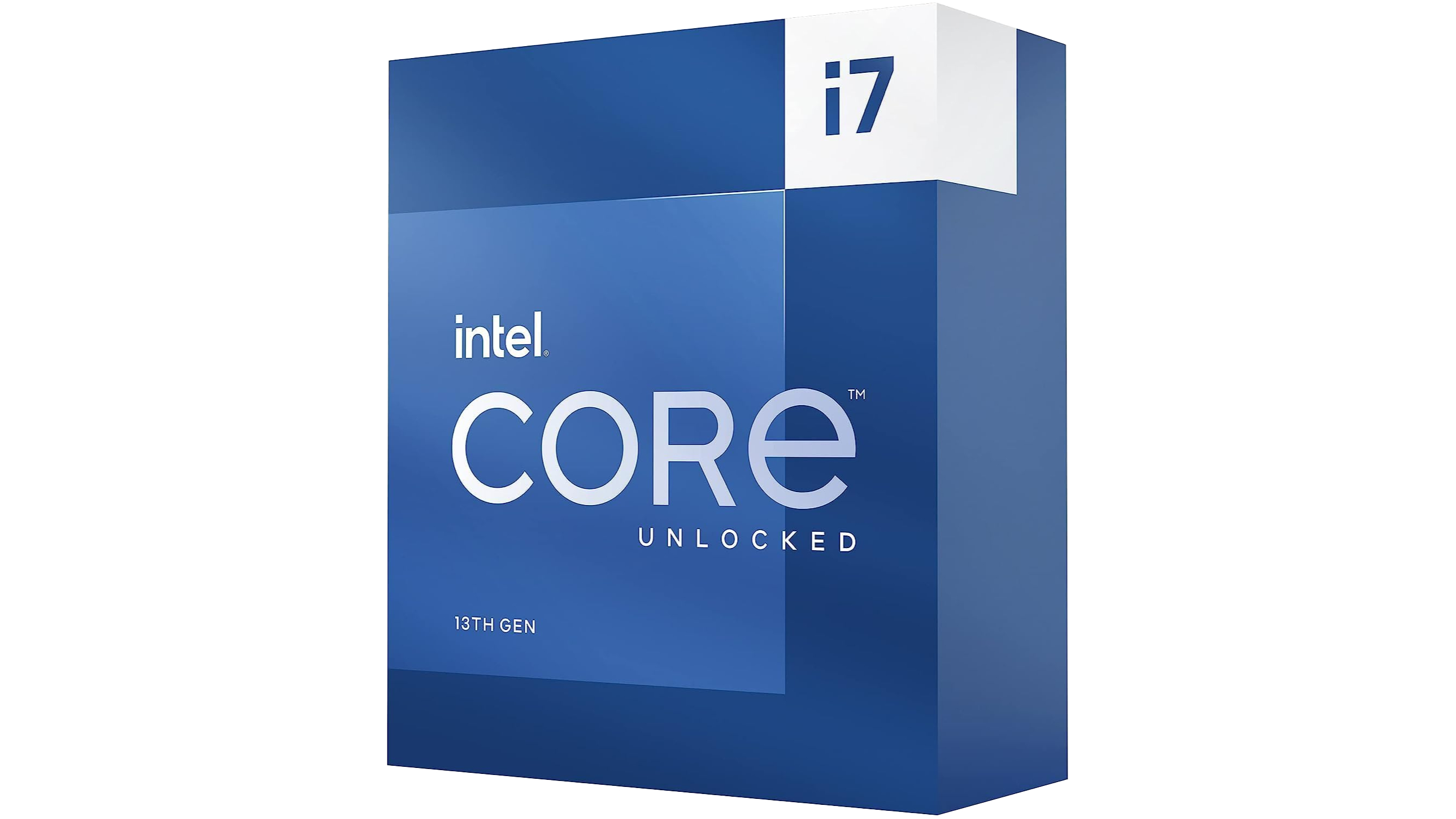
Efficiency Cores: 12
Performance Cores: 8
Threads: 28
Base Clock (E-Cores): 2.5 GHz
Base Clock (P-Cores): 3.4 GHz
Boost Clock (E-Cores): 4.3 GHz
Boost Clock (P-Cores): 5.5 GHz
Total Cache: 61MB
TDP: 125W
The Intel Core i7-14700K is a seriously impressive chip delivering Core i9-13900K levels of performance, including the best gaming performance of any Intel chip, at an i7 price point—and a lower one than its predecessor to boot.
Pros
- Core i9-13900K performance
- Outstanding gaming processor
- Slight price cut from previous gen
Cons
- Only a small gen-on-gen improvement
- Runs very hot
- Higher power usage
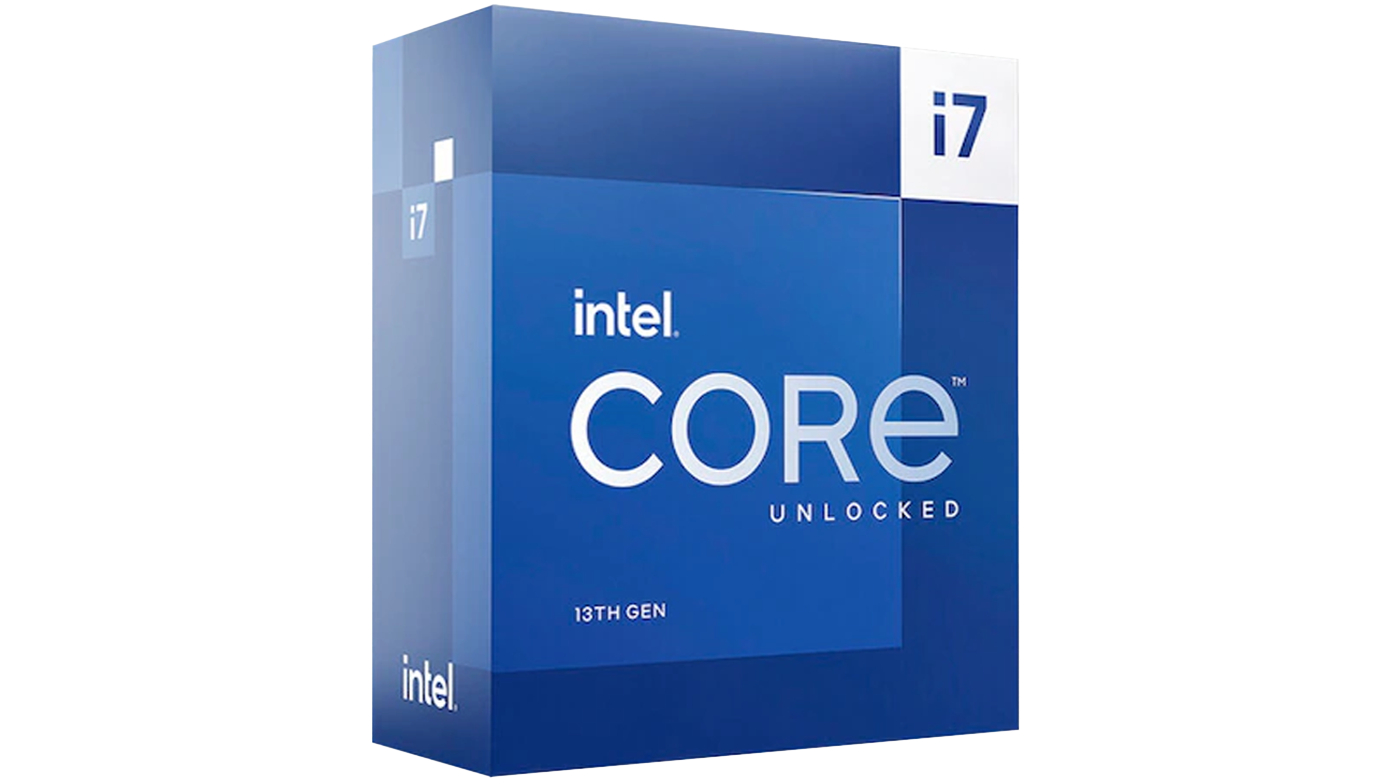
Efficiency Cores: 8
Performance Cores: 8
Threads: 24
Base Clock (E-Cores): 2.5 GHz
Base Clock (P-Cores): 3.4 GHz
Turbo Clock (E-Cores): 4.2 GHz
Turbo Clock (P-Cores): 5.4 GHz
Cache: 78MB Total
TDP: 125W
The Intel Core i7-13700K is an outstanding processor for just about every purpose, making it a great workhorse CPU that can get all manner of work done quickly. Its energy efficiency is laughable, unfortunately, making it a poor choice for any low-profile, low-power PC builds despite it being well-priced.
Pros
- Outstanding gaming performance
- Excellent price
- DDR4 and DDR5 support
Cons
- Absolutely drunk on (electrical) power
- Runs hot, so get a great cooler
Now that the Intel Core i7-14700K has hit the scene, a lot of us have been excited to put Chipzilla's midrange workhorses head to head, and the 14700K vs 13700K is an interesting battle for sure.
Each chip has its advantages, and while the 14700K does have the benefit of being a generation ahead of the Intel Core i7-13700K, Intel Raptor Lake Refresh is the last chip generation to run on Intel's LGA 1700 platform, so in reality, there hasn't been much of a spec upgrade this generation, broadly speaking.
Except for the i7-14700K, which received a slight boost in its core count, the only 14th-gen chip to be so blessed. But is it enough to overpower the i7-13700K, my long-running pick for the best processor on the market for most people? And with the release of the 14700K, will the 13700K drop in price enough to make it a value titan, essentially the very best of both worlds?
Fortunately, I've tested both chips extensively over the past few weeks, so I know these two processors inside and out. I'm here with all my data to help you pick the best Intel processor for your midrange build, or at least to alleviate your curiosity over which of these two processors comes out the midrange champ.
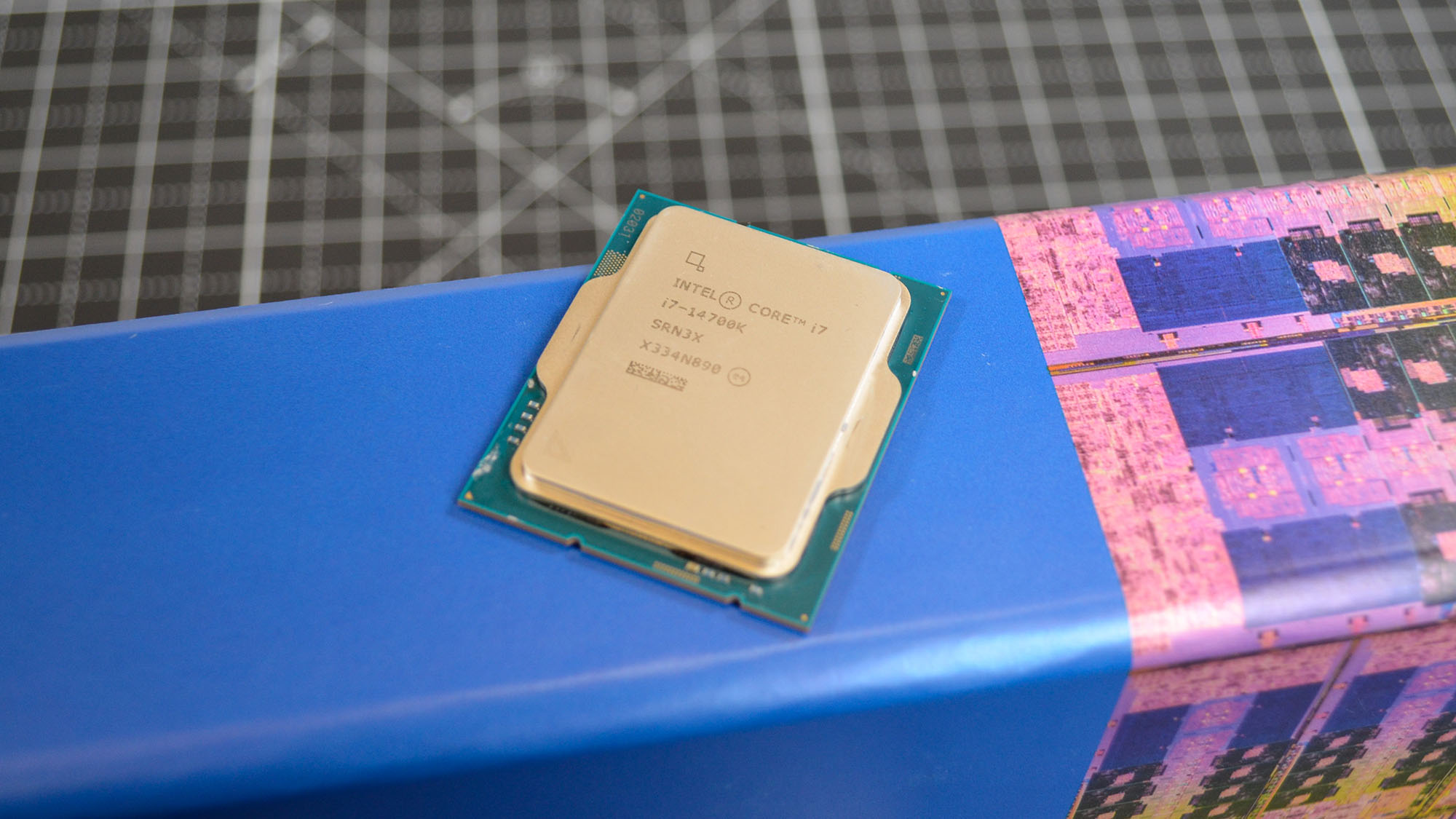
14700K vs 13700K: Price
While the rest of the Raptor Lake Refresh lineup has pretty much remained static, there has been some interesting movement on the Core i7-14700K vs 13700K: a slight drop in price from $419 (about £335/AU$610) to $409 (about £325/AU$595), for starters.
This might not seem like a lot, but it's something, especially since the i7-14700K packs in some added cores for better performance, making it an even better value, at least at MSRP.
Of course, now that the 14700K has been released, we can fully expect the 13700K to drop in price, but as it stands, the 14700K comes out the winner here on both absolute pricing and actual value for the price you're paying.
Sign up for breaking news, reviews, opinion, top tech deals, and more.
- Winner: Intel Core i7-14700K
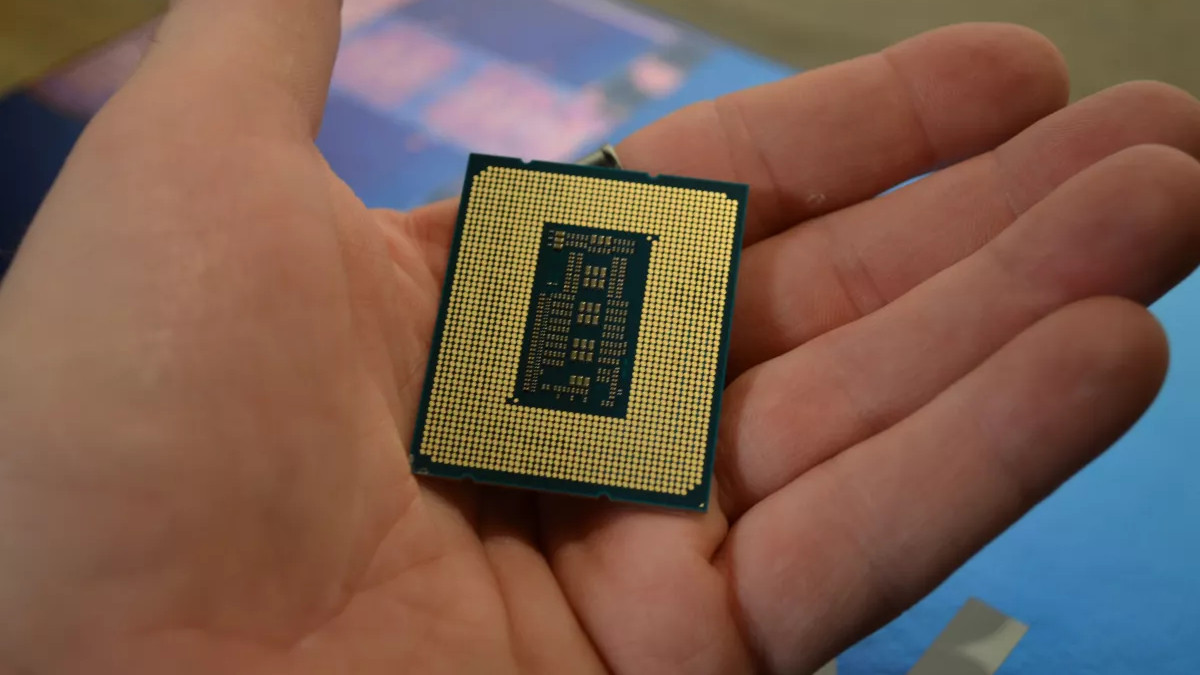
14700K vs 13700K: Specs & features
The specs on the Intel Core i7-14700K vs 13700K are the most interesting comparison of the entire Raptor Lake Refresh lineup primarily because they are the only ones that have changed substantively gen-on-gen.
It's not a huge change, but the 14700K has an additional four efficiency cores
for a total of 12 E-cores compared to the eight E-cores for the 13700K. These aren't the more powerful performance cores that do the heavy lifting when video encoding or playing the best PC games, but they do add some extra resources to an already powerful chip. These cores also bring an additional four processing threads for a total of 28 (compared to the 13700K's 24) and some extra L2 cache for those E-cores, bringing the total L2+L3 cache for the 14700K up to 61MB from the 13700K's 54MB.
As far as clock speeds, the 14700K gets a minor 100MHz boost to its P-core and E-core turbo clocks, bringing them up to 5.5GHz and 4.3GHz from 5.4GHz and 4.2GHz, respectively.
Like the other Raptor Lake Refresh chips, the 14700K also has support for discrete Wi-Fi 7 and Thunderbolt 5, though neither of those technologies will be available to the mainstream user for a while (Editor's Note: Intel has since reached out to correct its original announcement to add that the recently released 14th-gen desktop chips will not, in fact, support Thunderbolt 5).
| Header Cell - Column 0 | Intel Core i7-14700K | Intel Core i7-13700K |
|---|---|---|
| Performance Cores | 8 | 8 |
| Efficiency Cores | 12 | 8 |
| Threads | 28 | 24 |
| P-Core Base Clock | 3.40GHz | 3.40GHz |
| P-Core Boost Clock | 5.50GHz | 5.40GHz |
| E-Core Base Clock | 2.50GHz | 2.50GHz |
| E-Core Boost Clock | 4.30GHz | 4.20GHz |
| Cache | 61MB | 54MB |
| TDP | 125W | 125W |
| Motherboard Socket | LGA 1700 | LGA 1700 |
- Winner: Intel Core i7-14700K
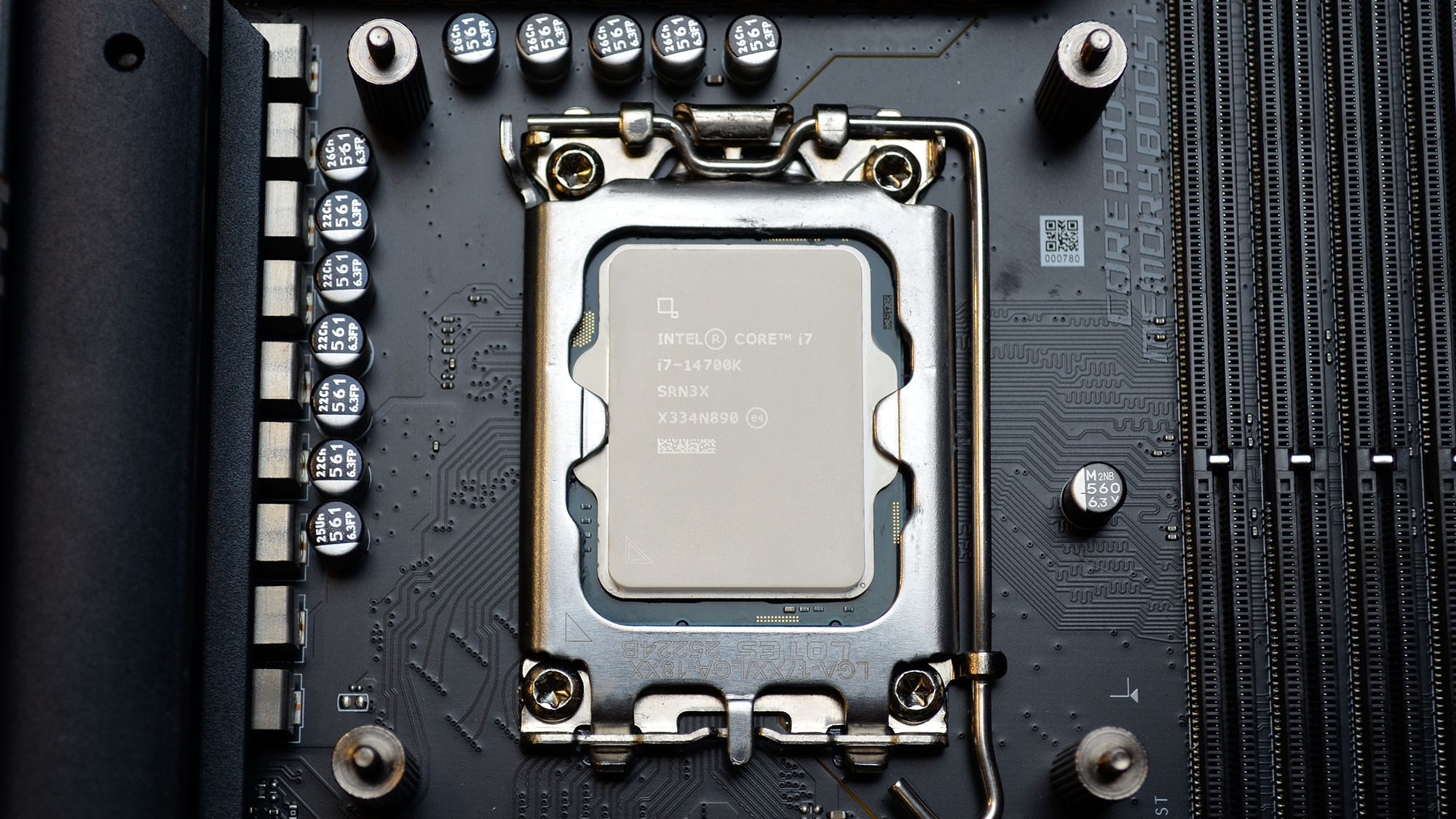
14700K vs 13700K: Performance
The extra specs on the Core i7-14700K vs the 13700K do translate into some extra performance, but the question is how much?
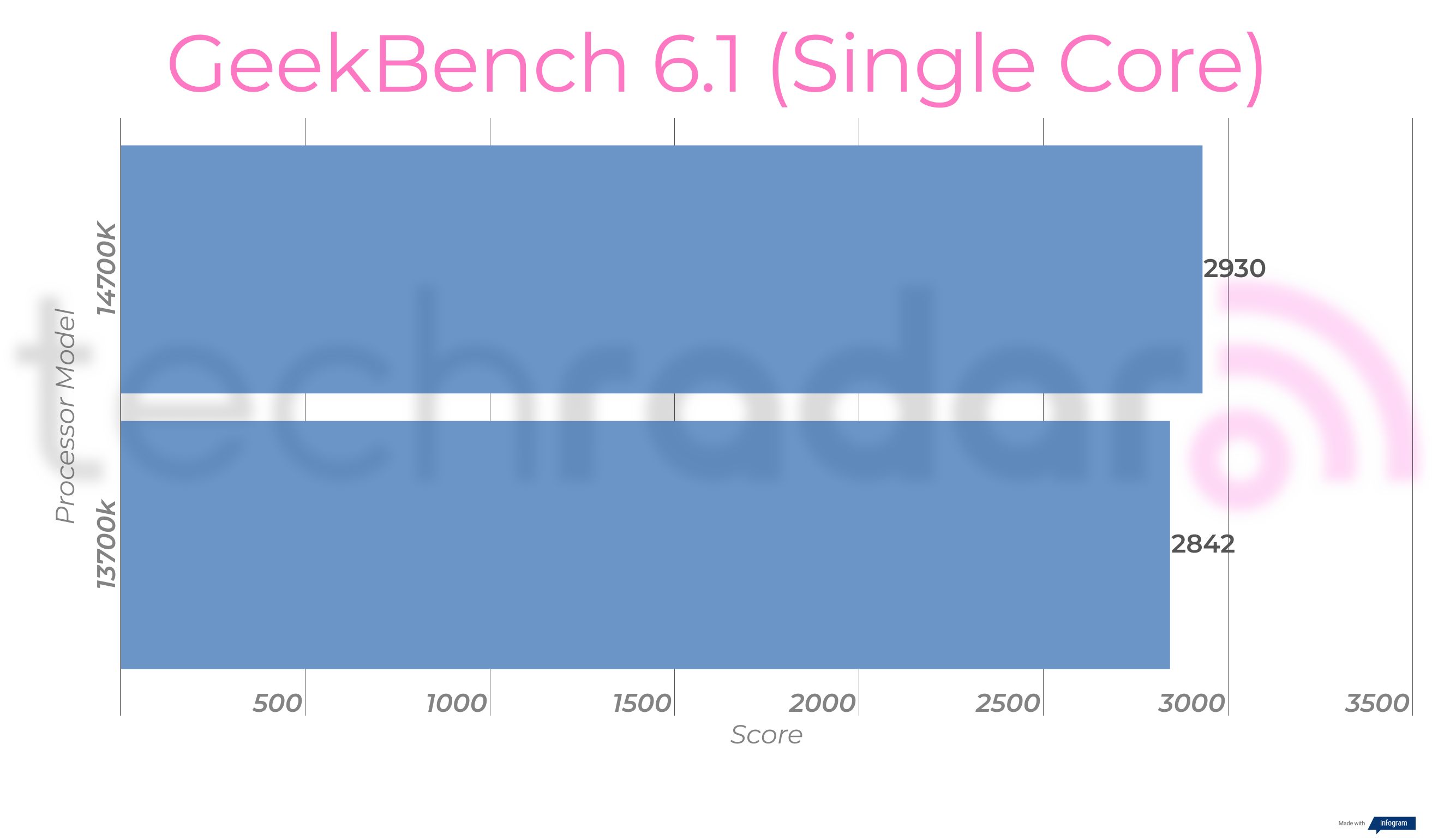
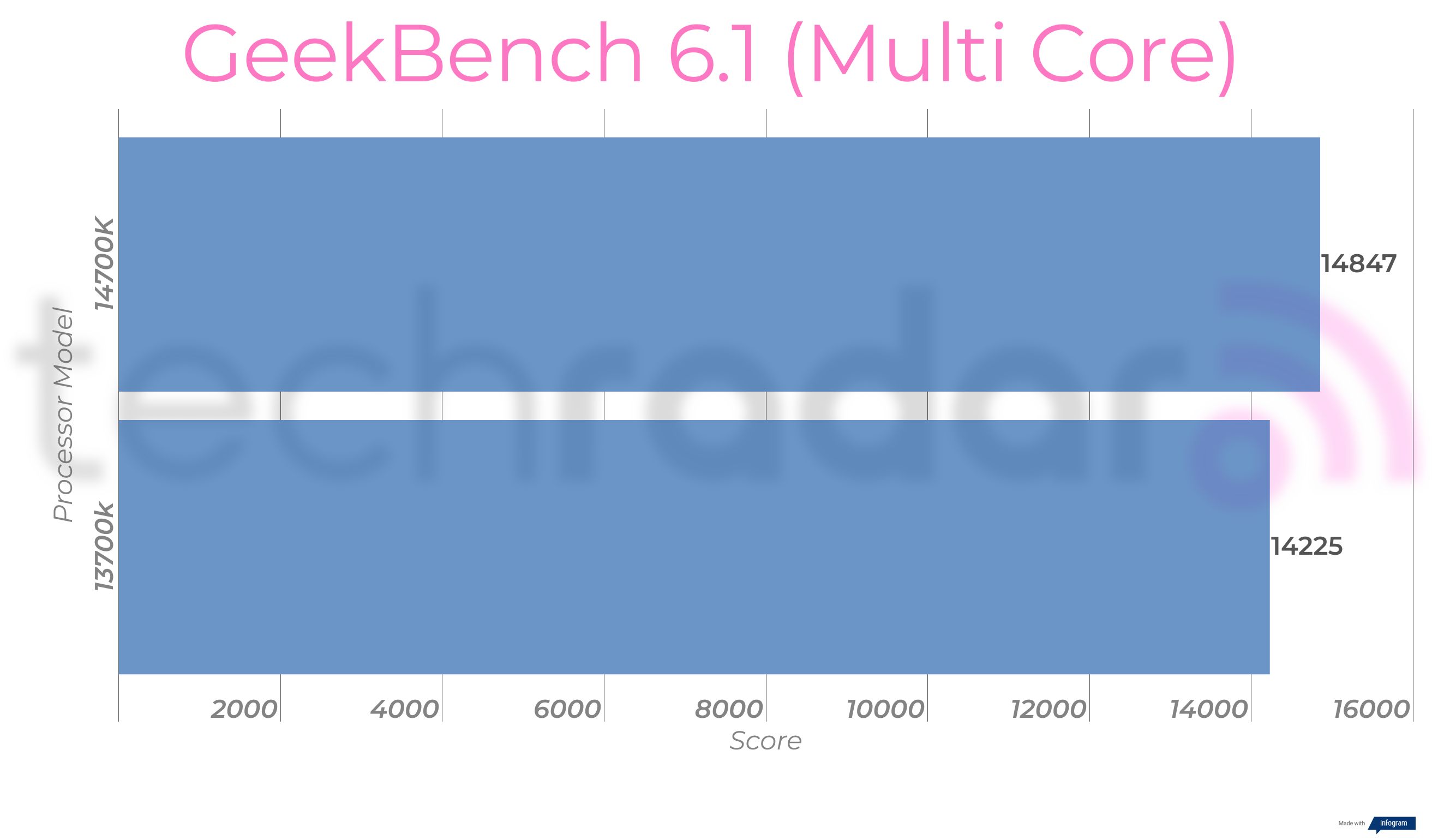
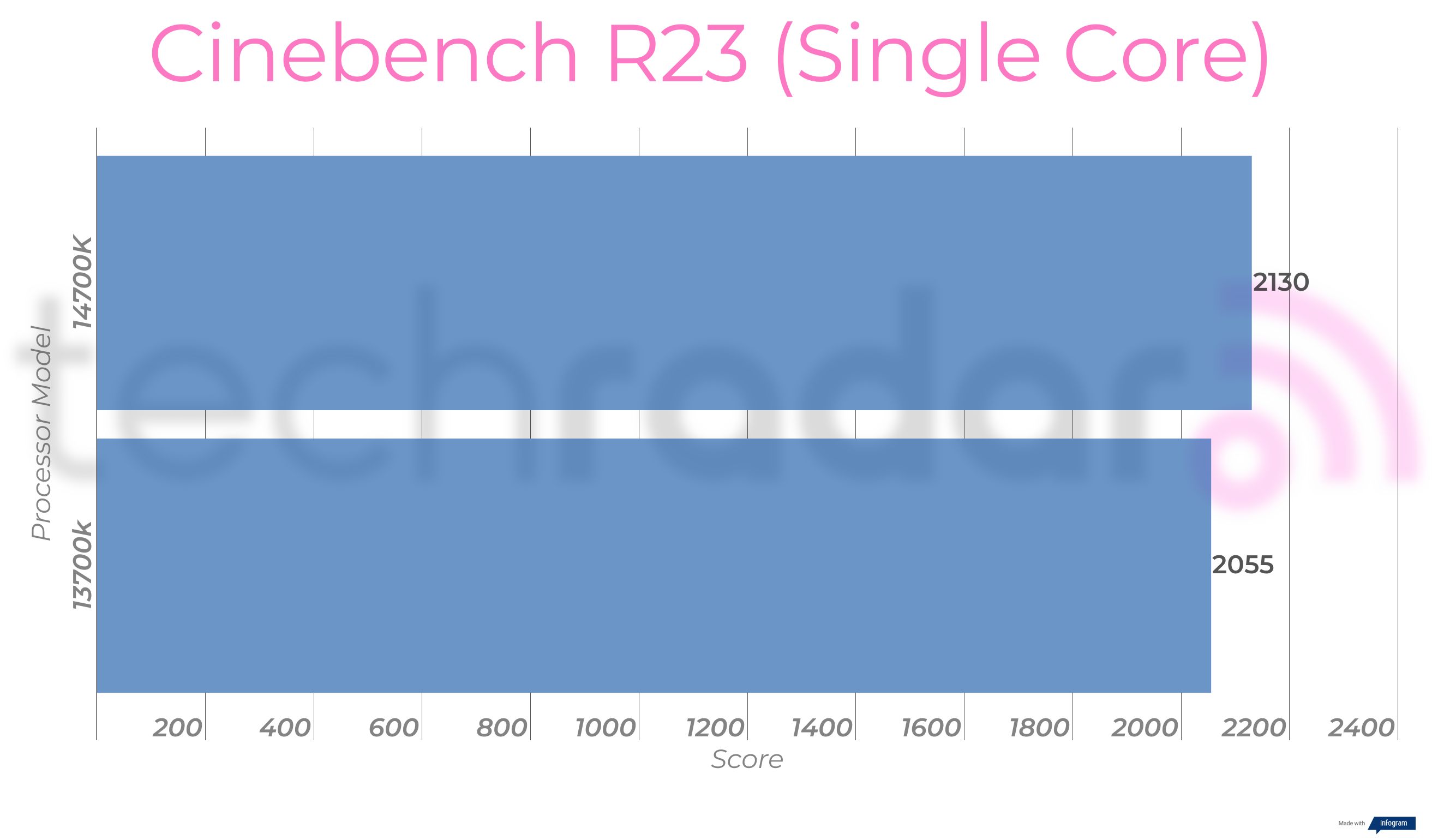
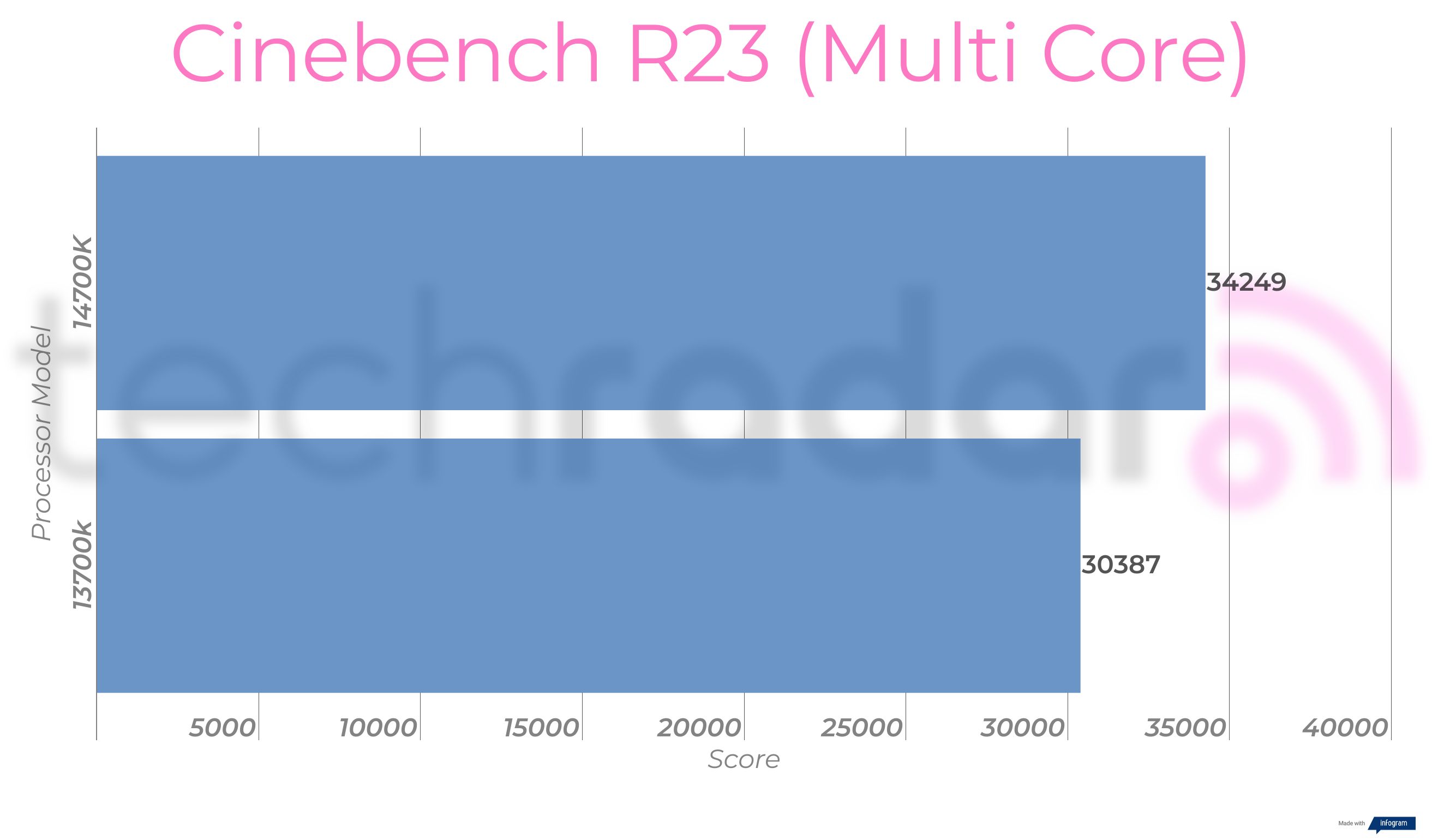
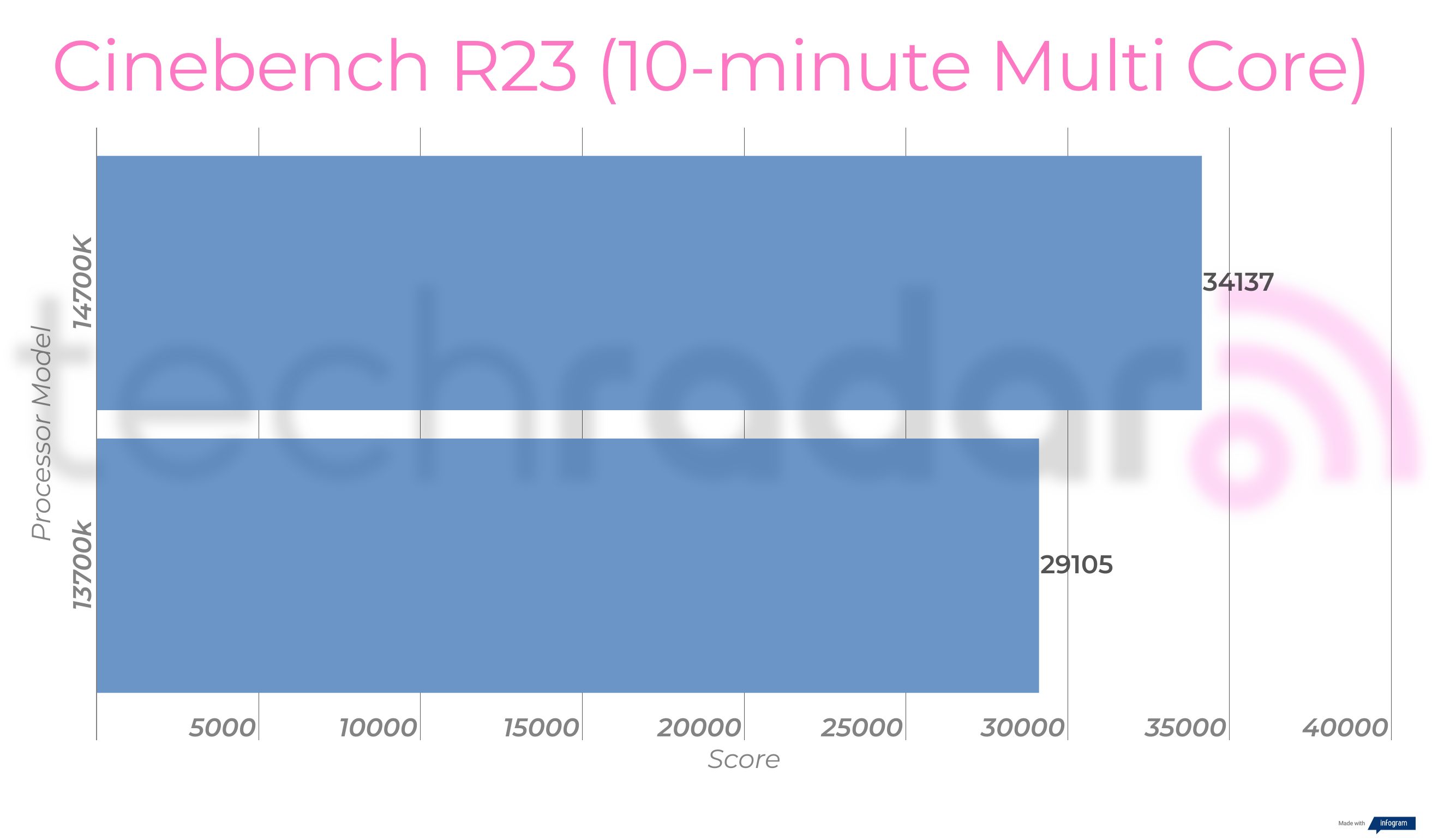
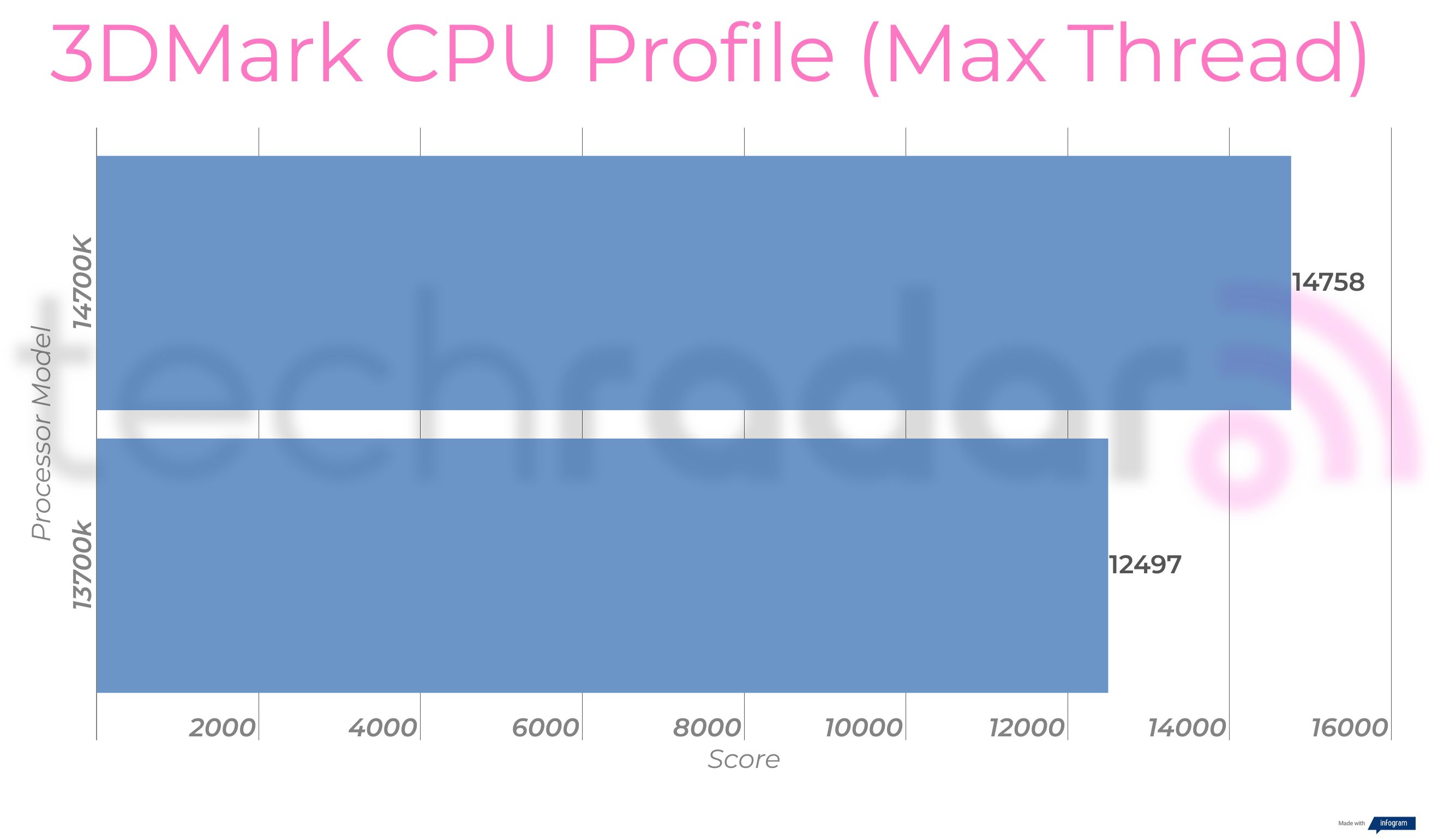
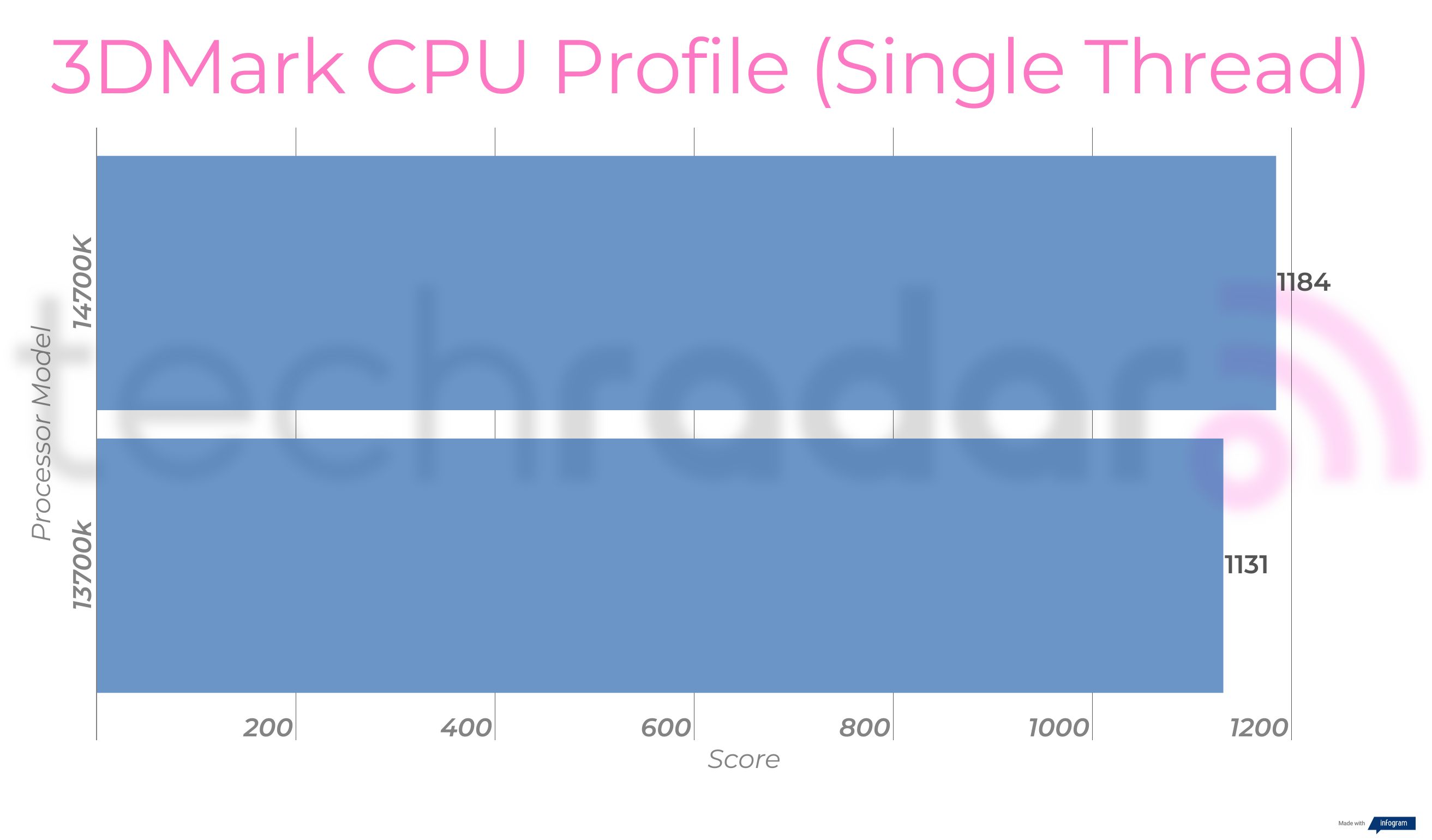
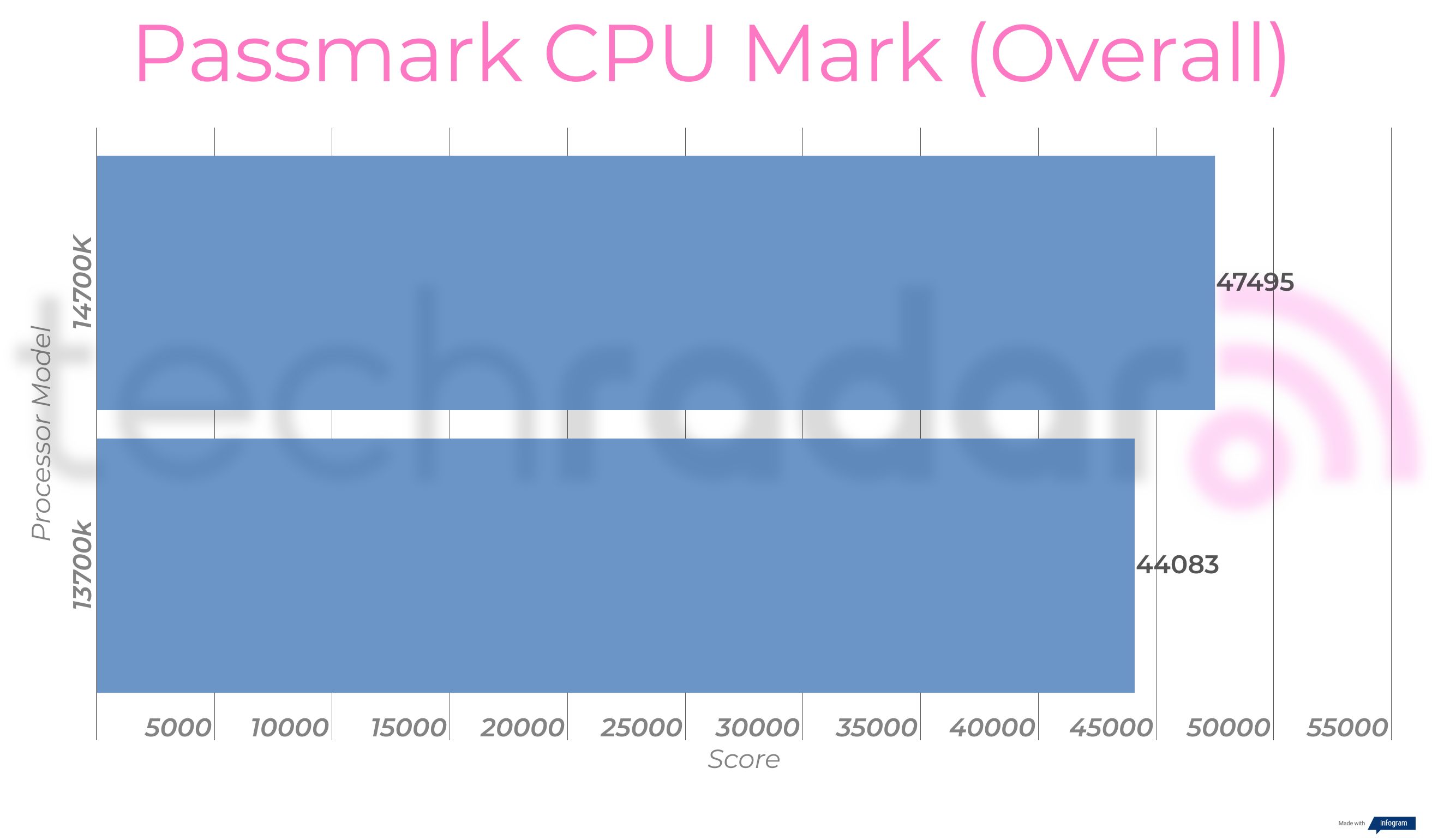
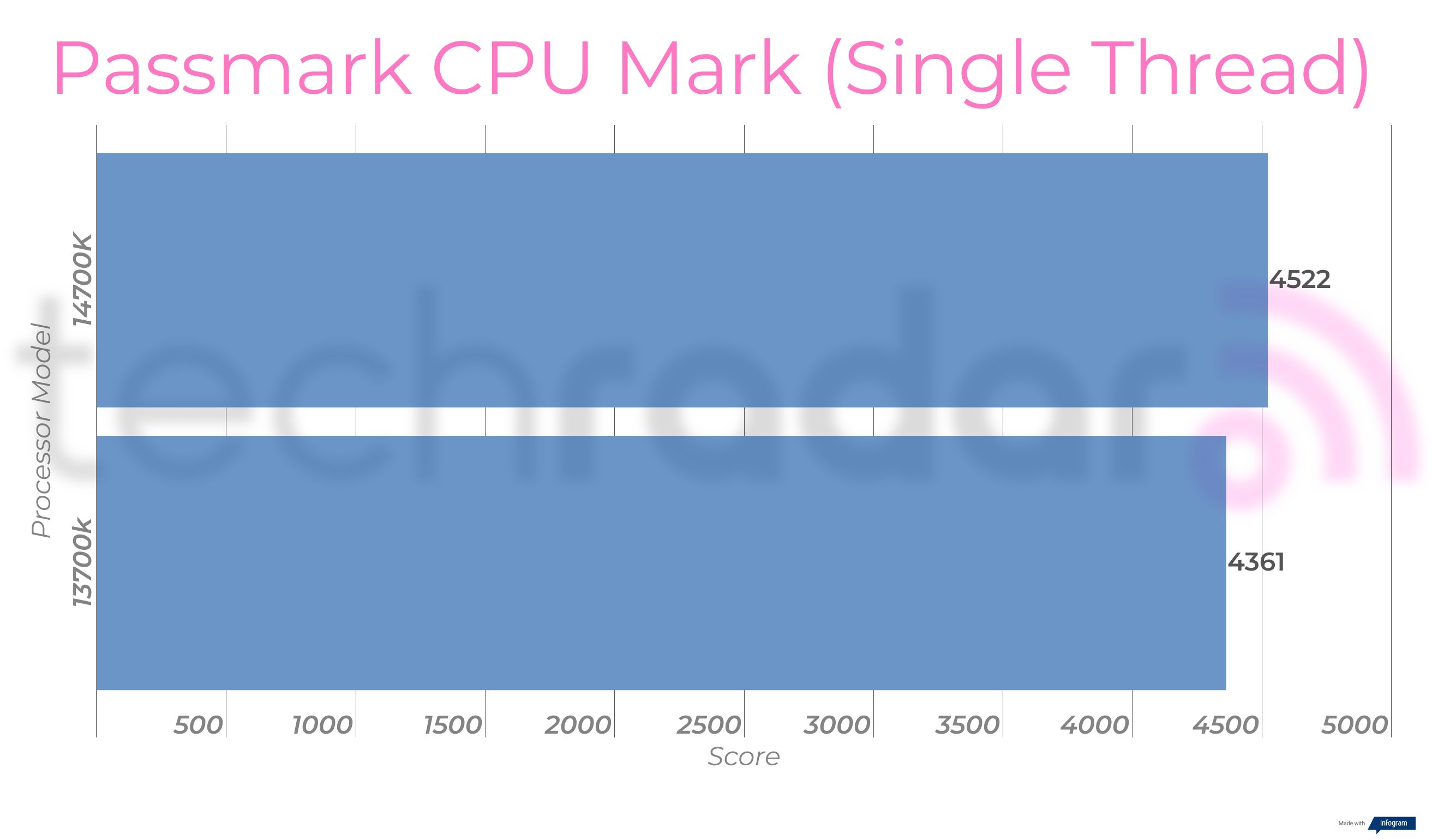
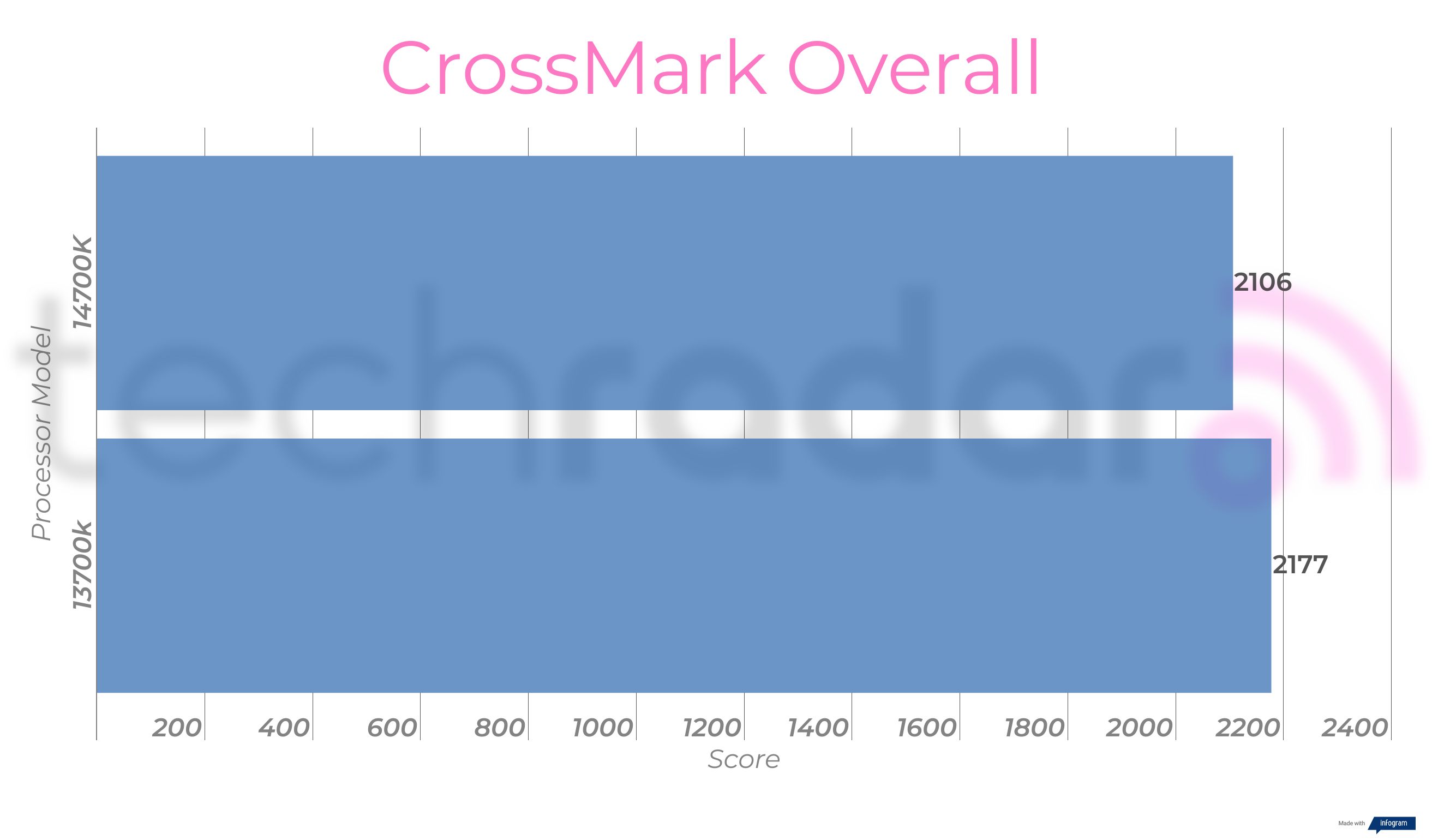
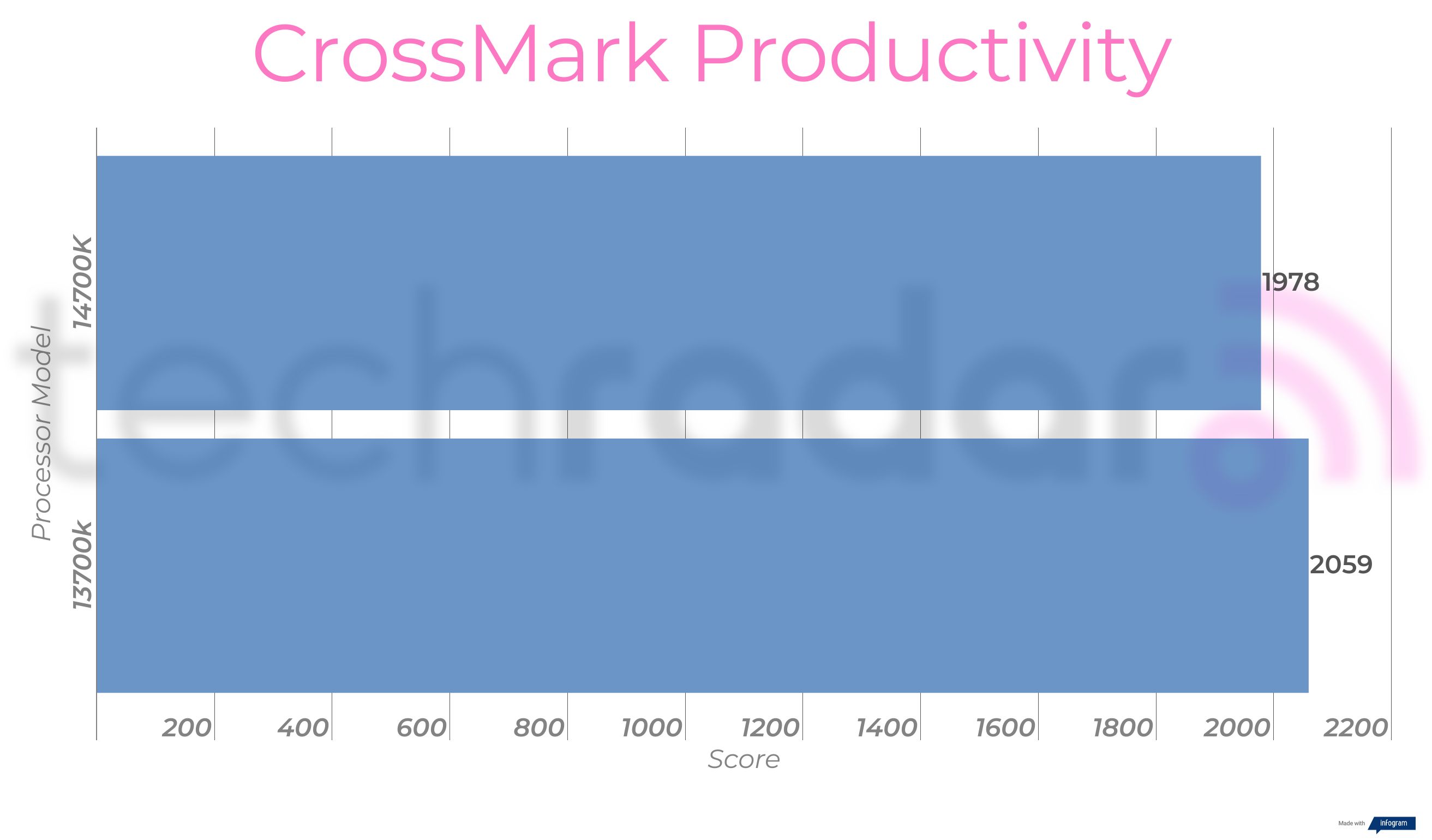
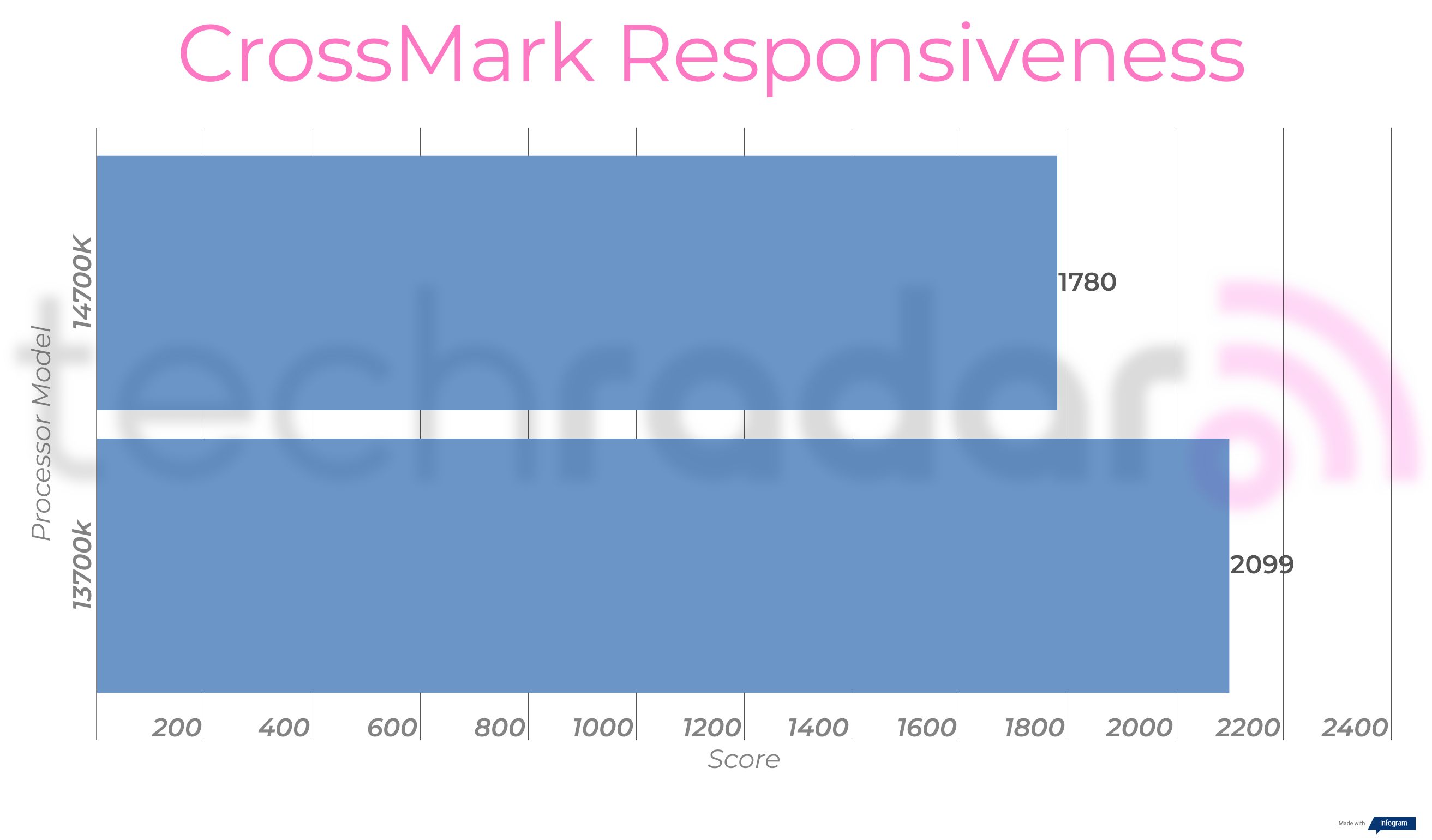
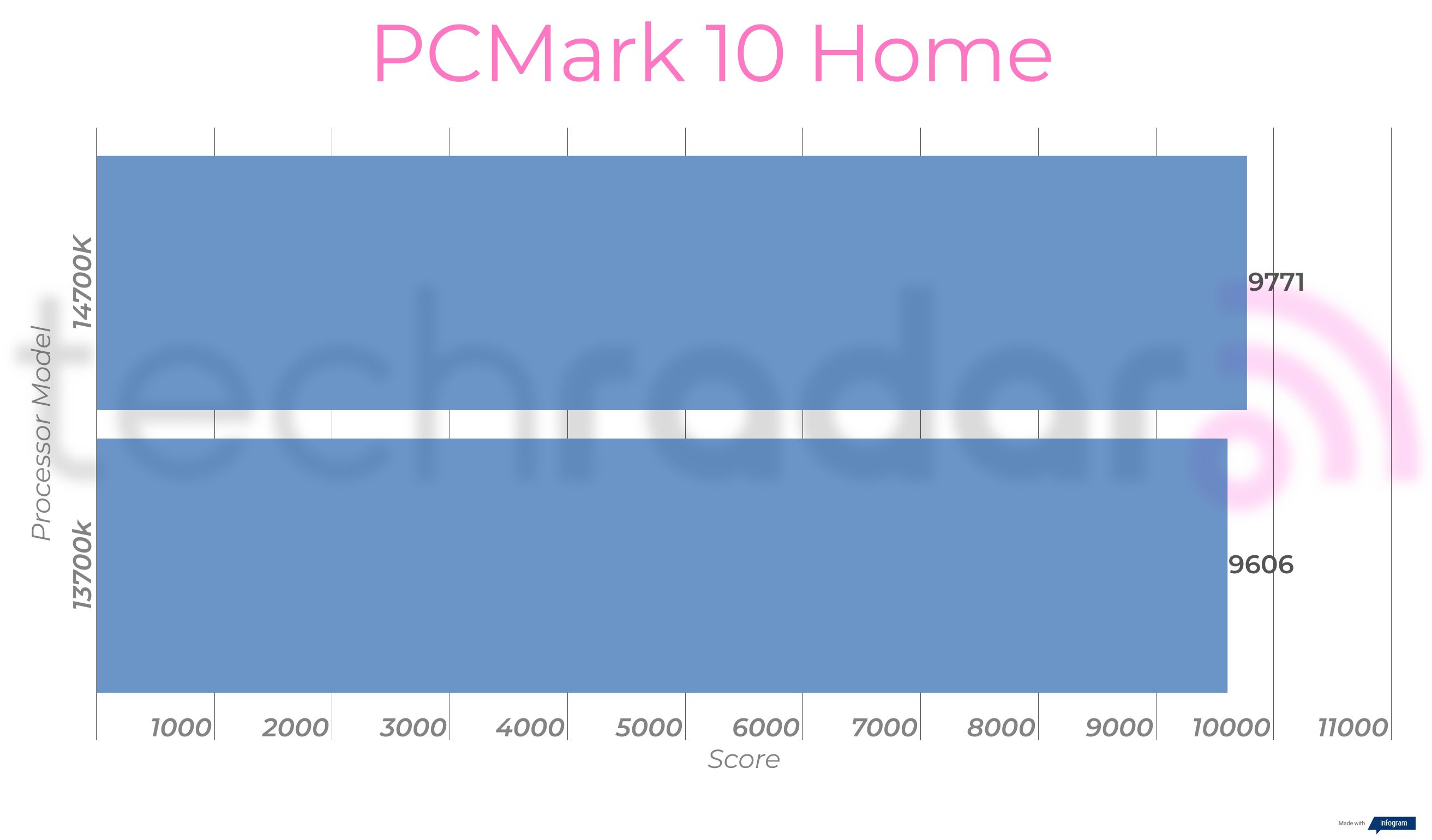
Broadly speaking, the performance gains for the Core i7-14700K are the strongest of all three Raptor Lake Refresh launch chips, with a 4.5% single-core improvement over the 13700K and a 13% improvement in multi-core performance, thanks to those extra E-cores.
On the productivity side of things, the 14700K actually comes off a bit worse (1.1% worse, to be exact) than the 13700K, but this was almost entirely down to its poorer Crossmark performance (especially its 15.2% lower responsiveness score), while its PCMark 10 performance showed a slight improvement of 1.7% over the 13th-gen i7.
Given the nature of benchmarking unreleased hardware, those crossmark scores might improve after an update, but maybe not, and you gotta take the scores as you get them.
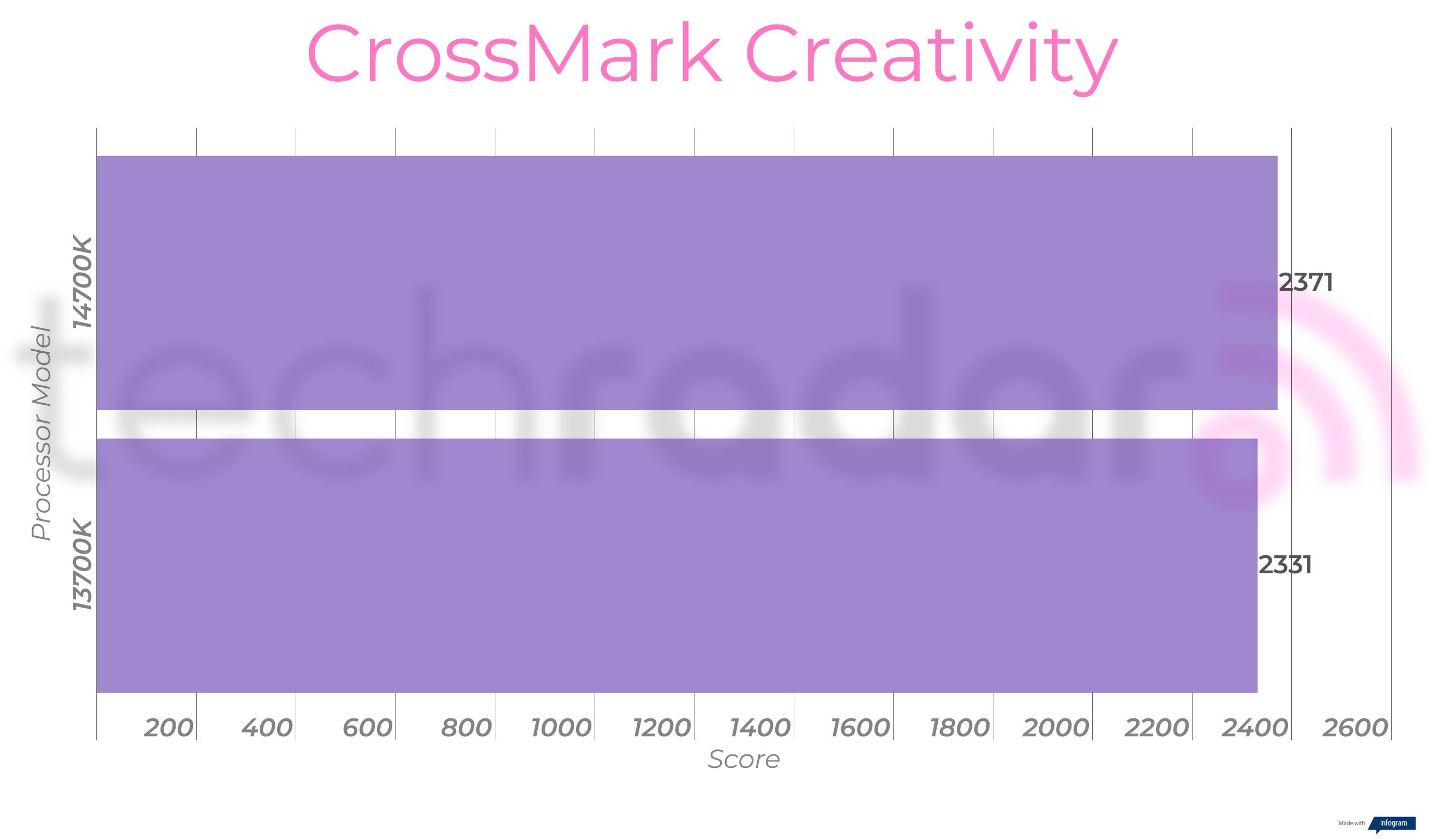
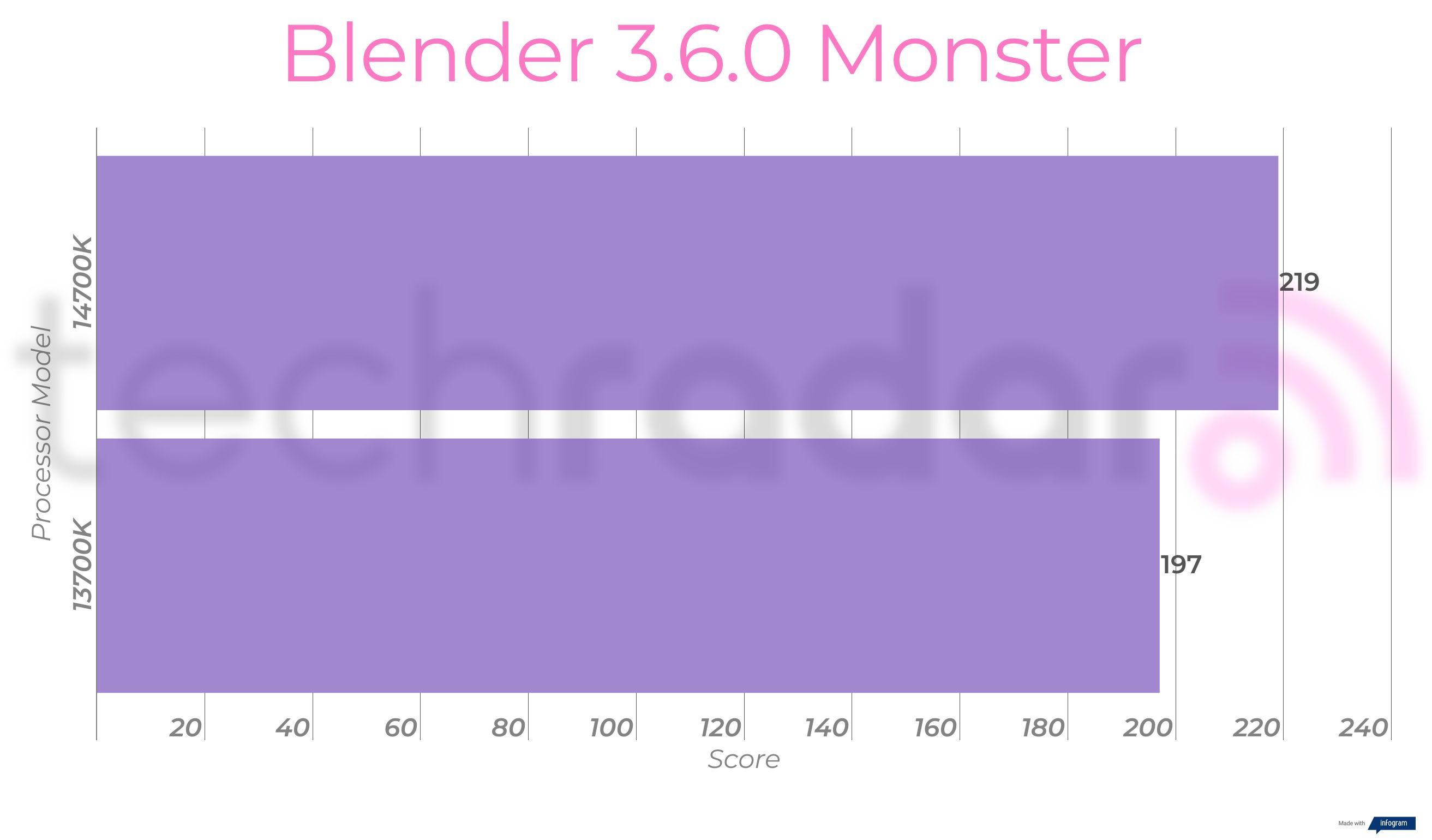
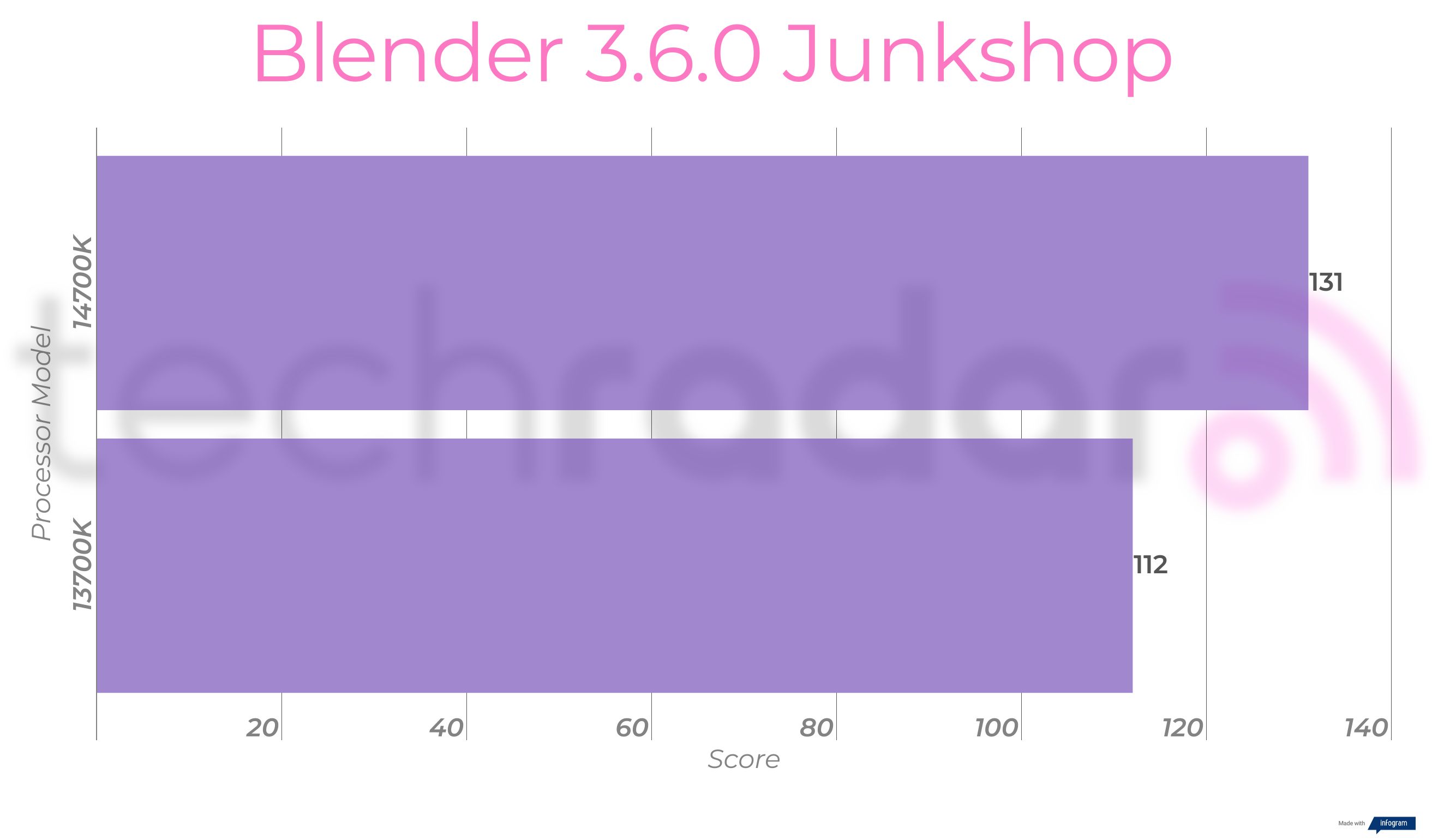
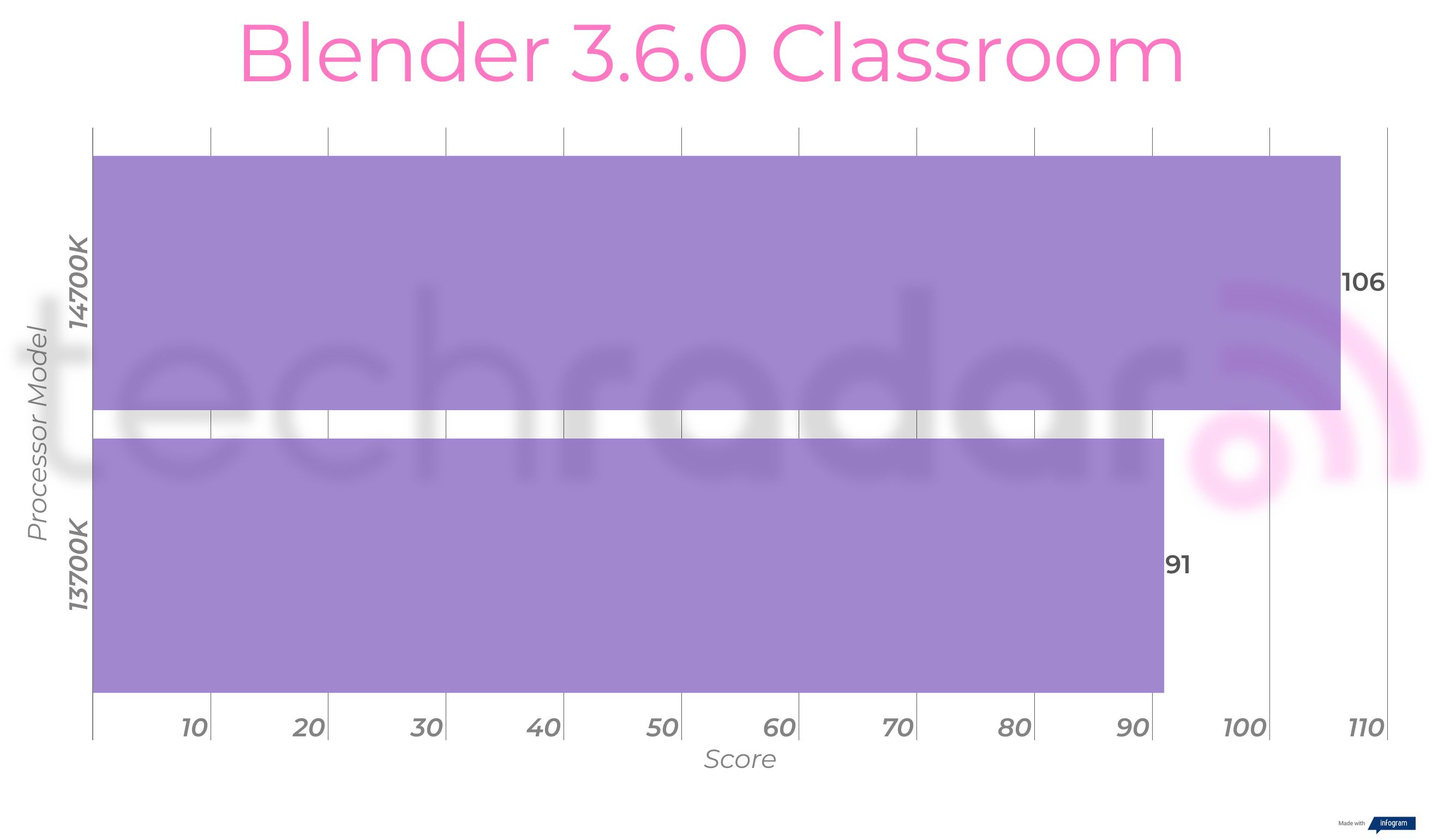
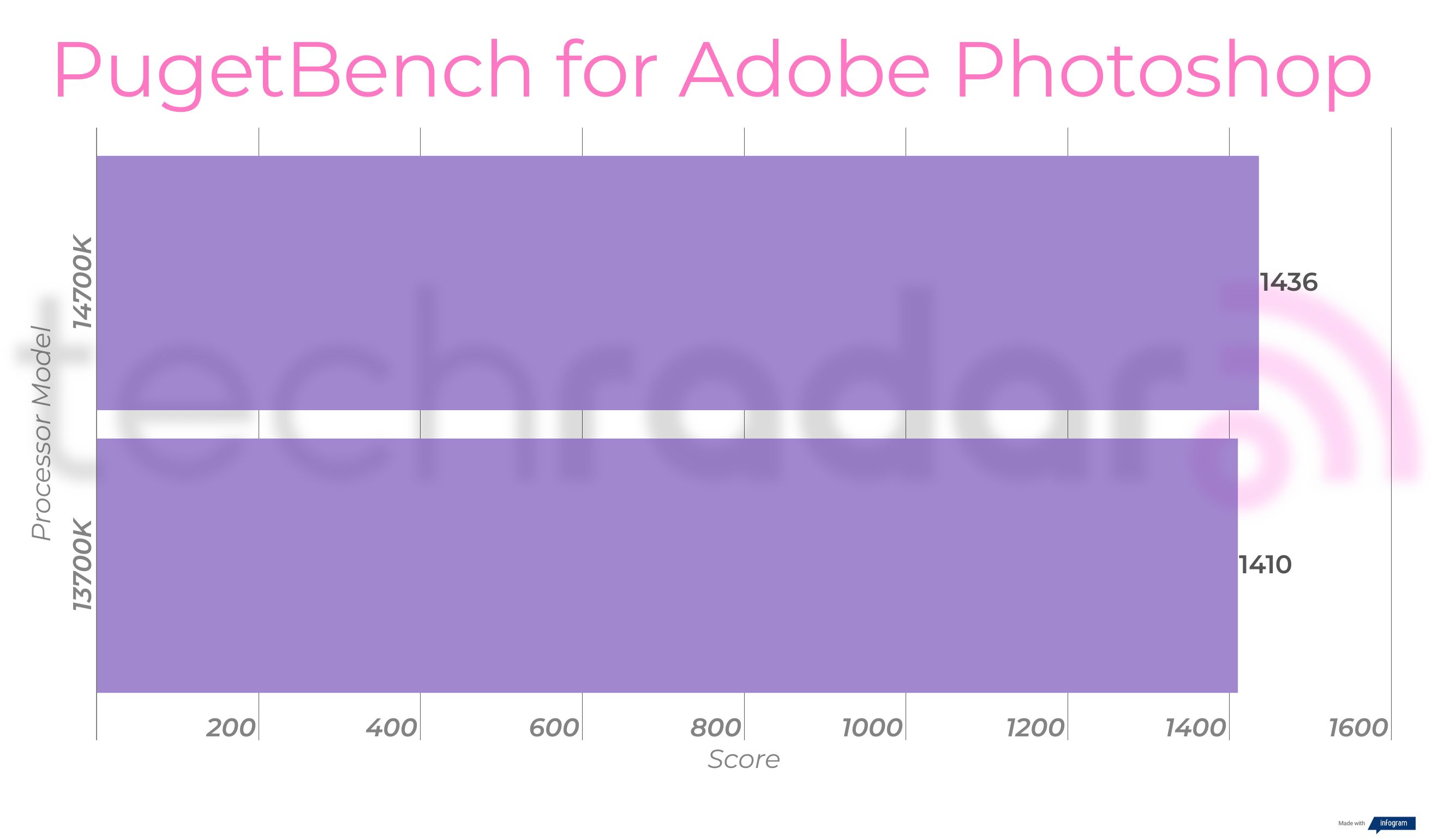
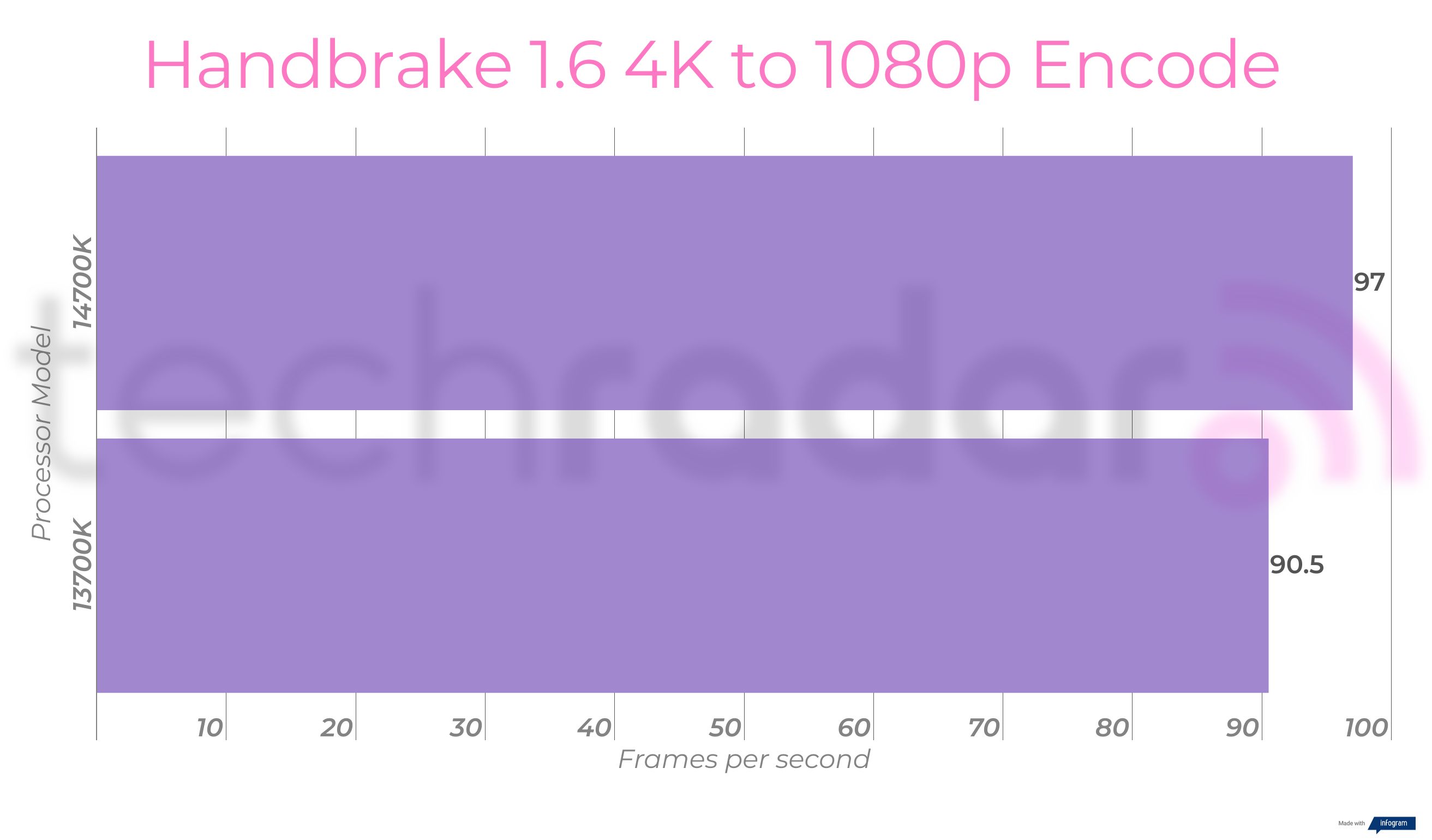
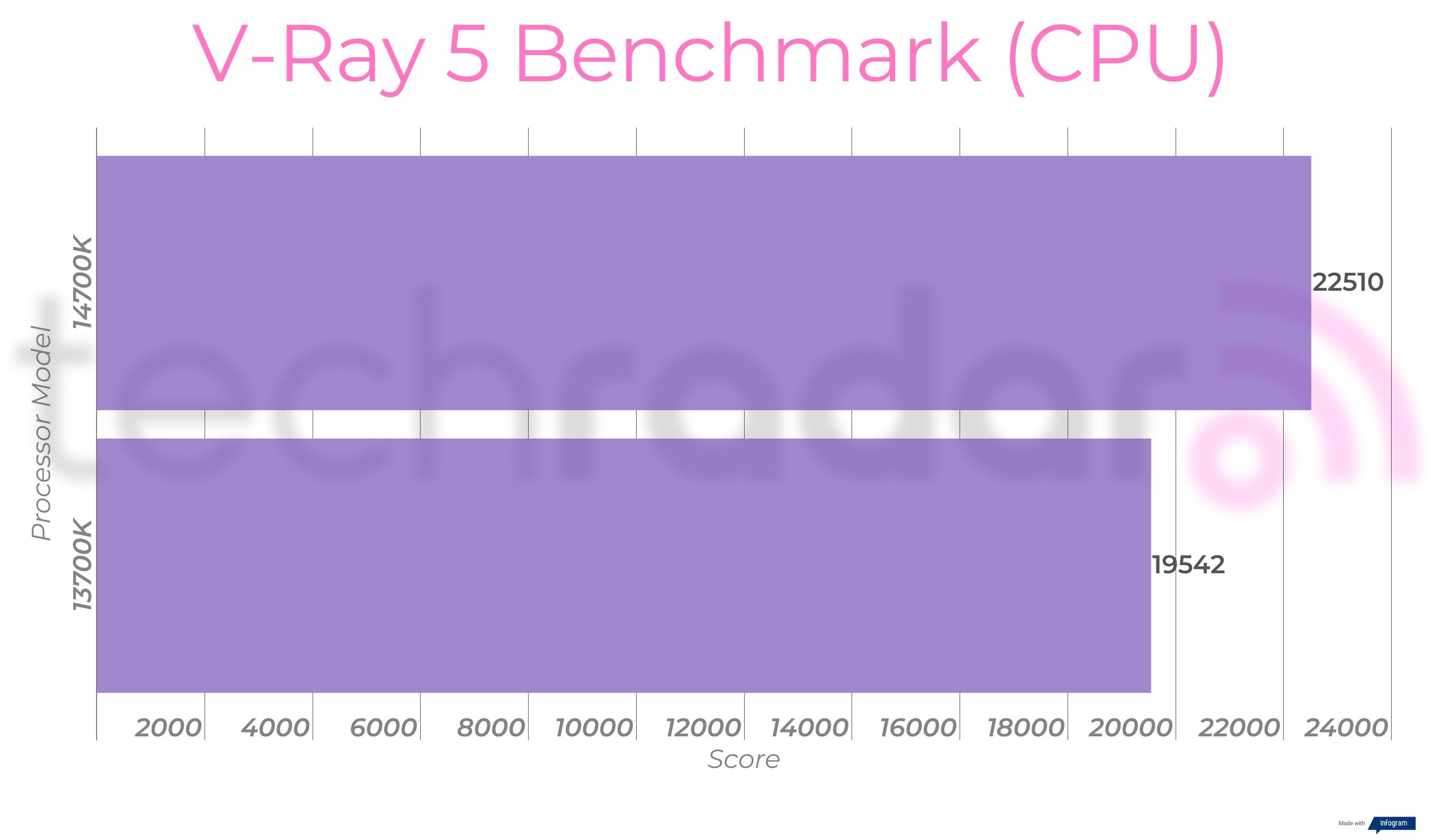
When it comes to creative workloads, the i7-14700K was universally the better chip, and sometimes by a decent amount. Its Blender 3.6.0 results were 14% better on average than the 13700K, while its V-Ray 5 CPU results were 15.2% better and its Handbrake 1.6 4K to 1080p encoding rate was about 7.2% faster.
Its Crossmark Creativity results were negligibly higher (1.7%), and its PugetBench for Adobe Photoshop results were likewise only 1.8% better. Overall, this translates into a roughly 10% better creative performance, which is something, even if it's not quite what people might be hoping for.
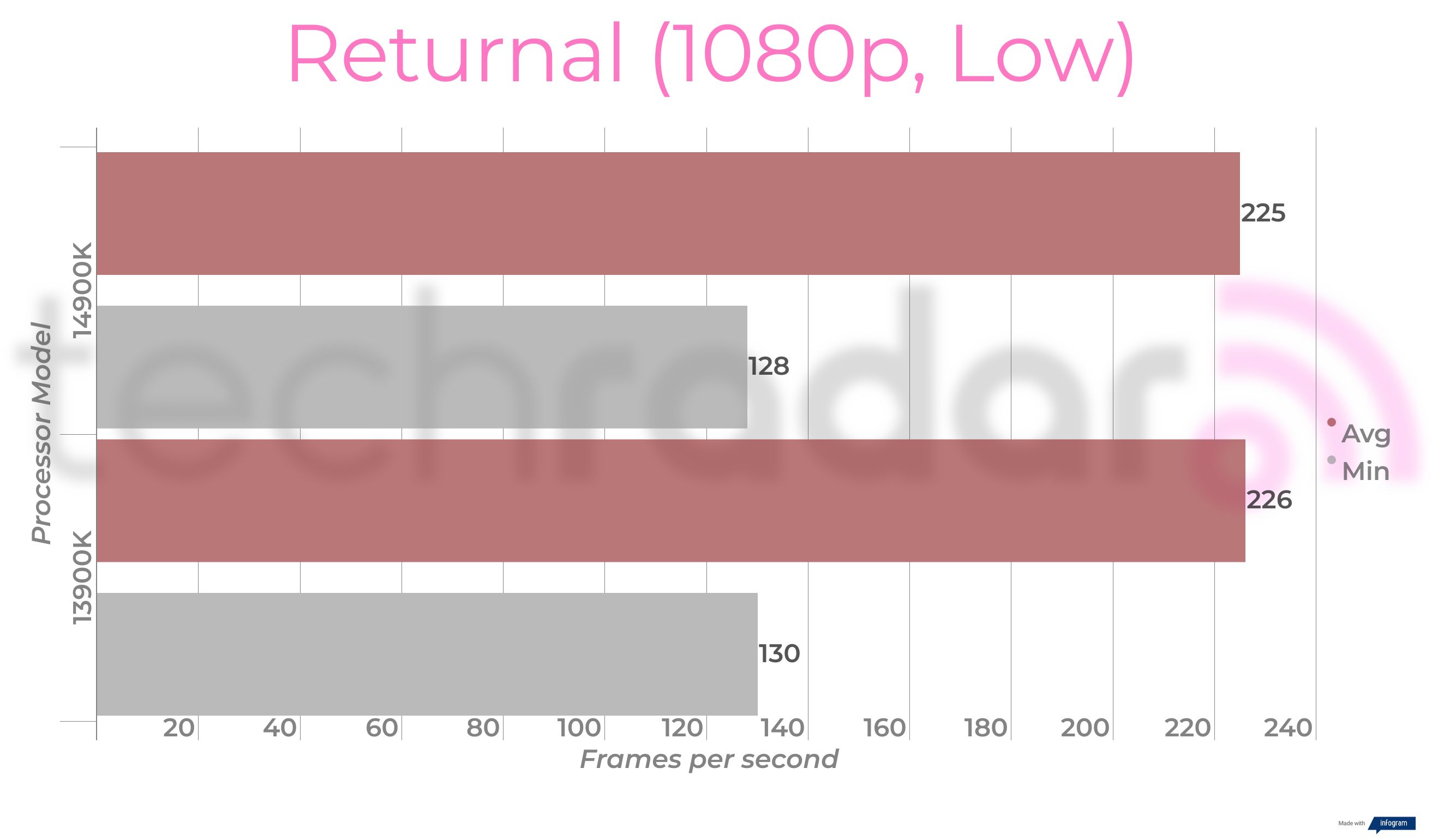
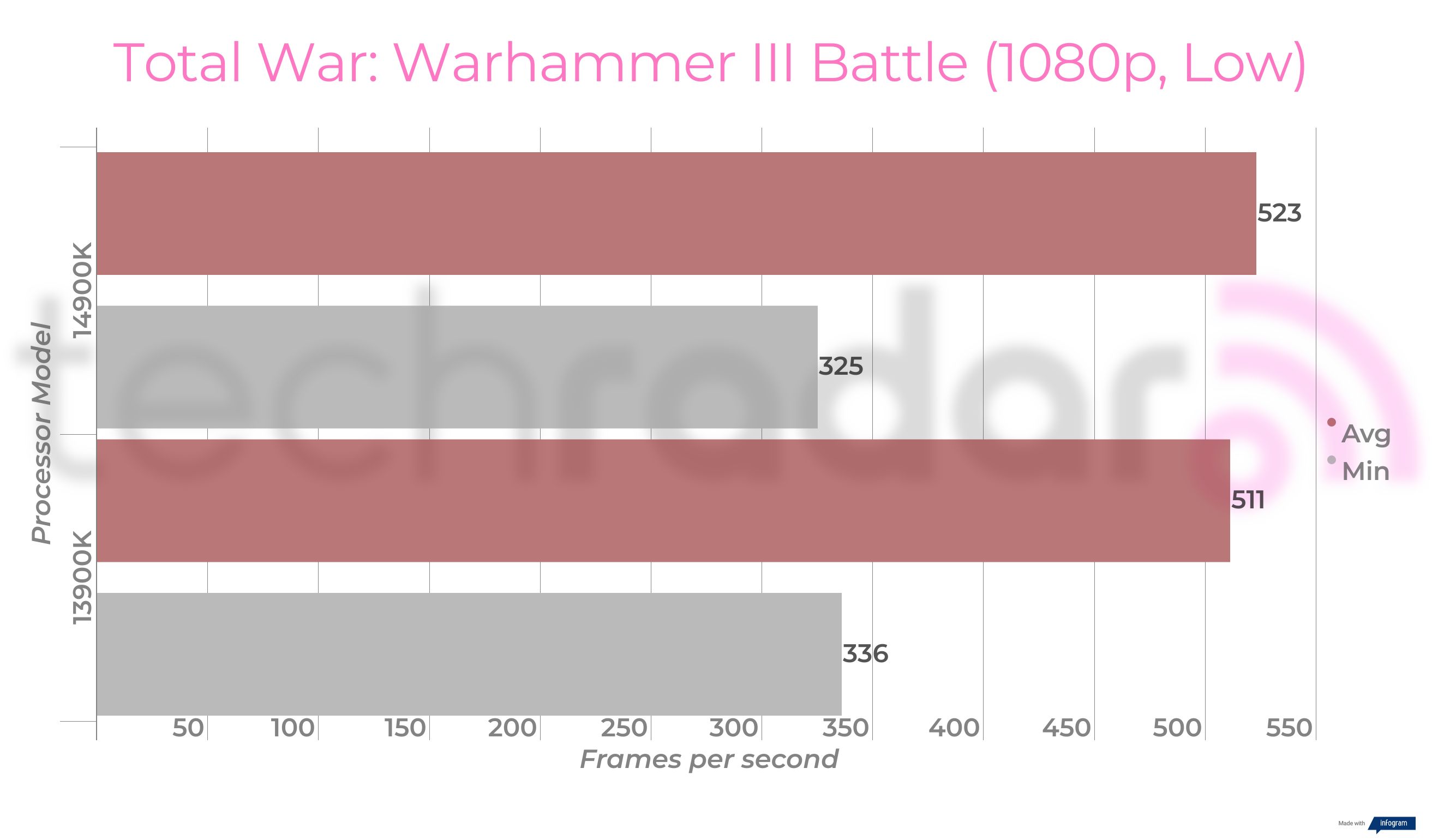
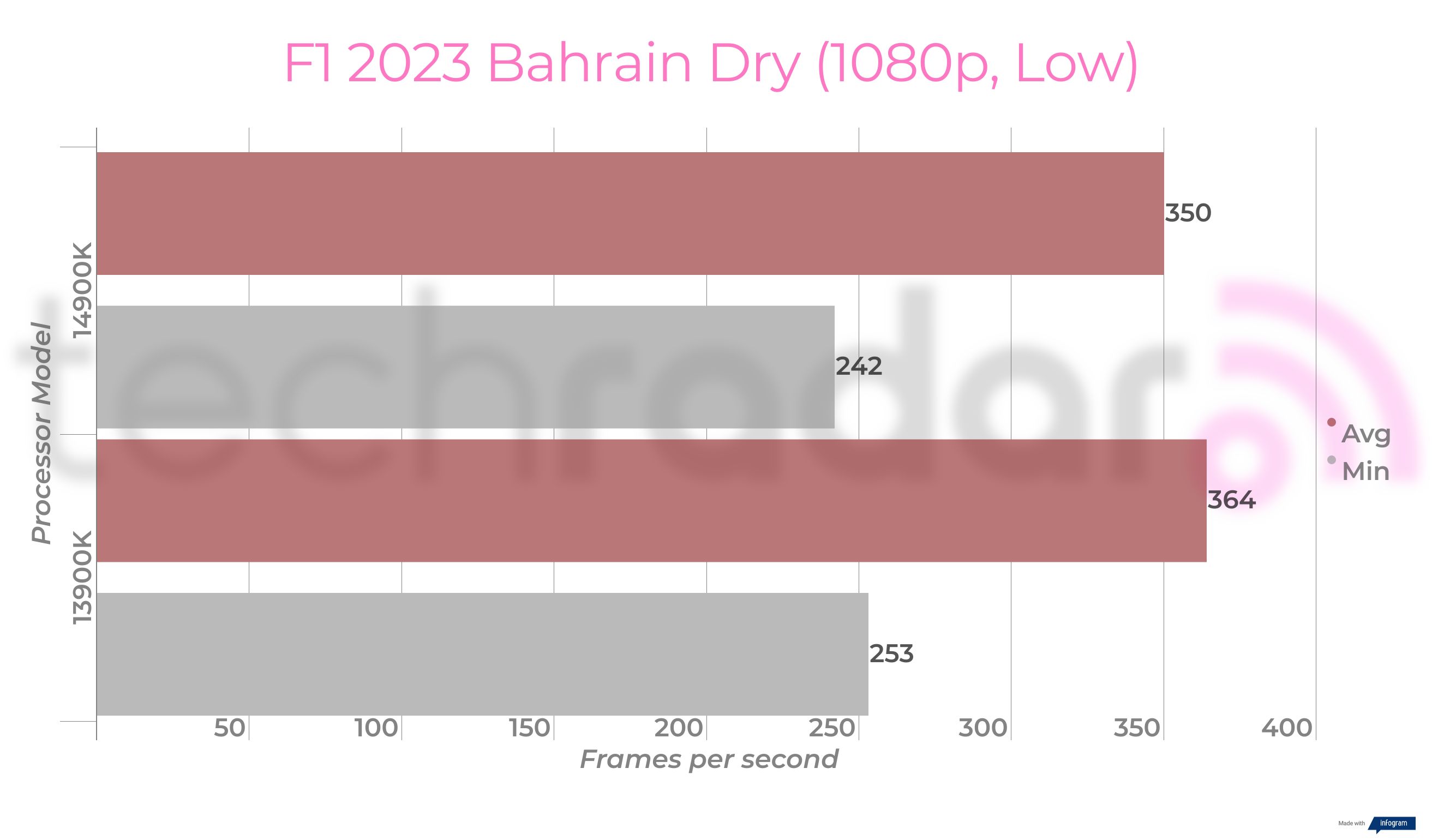
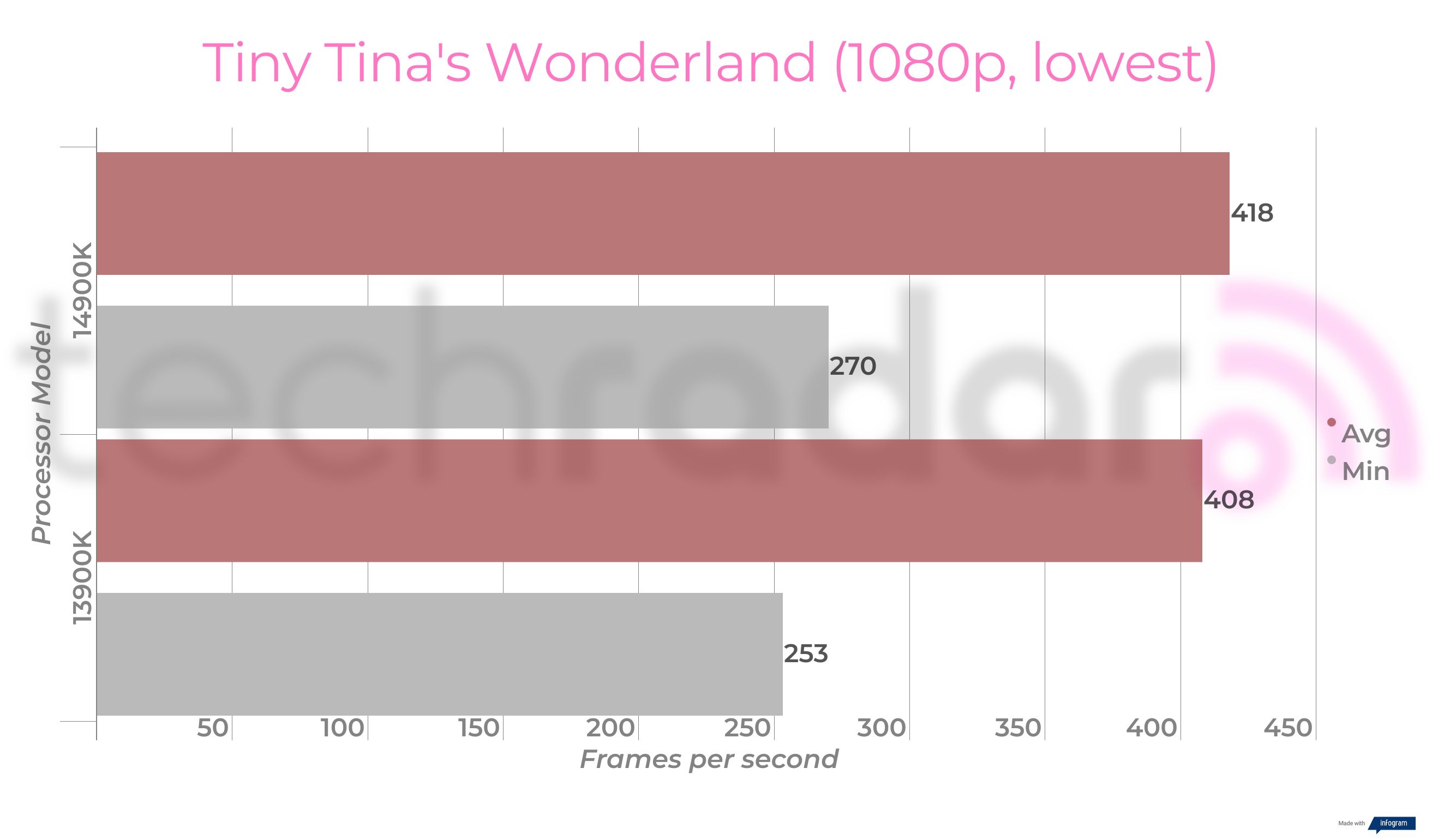
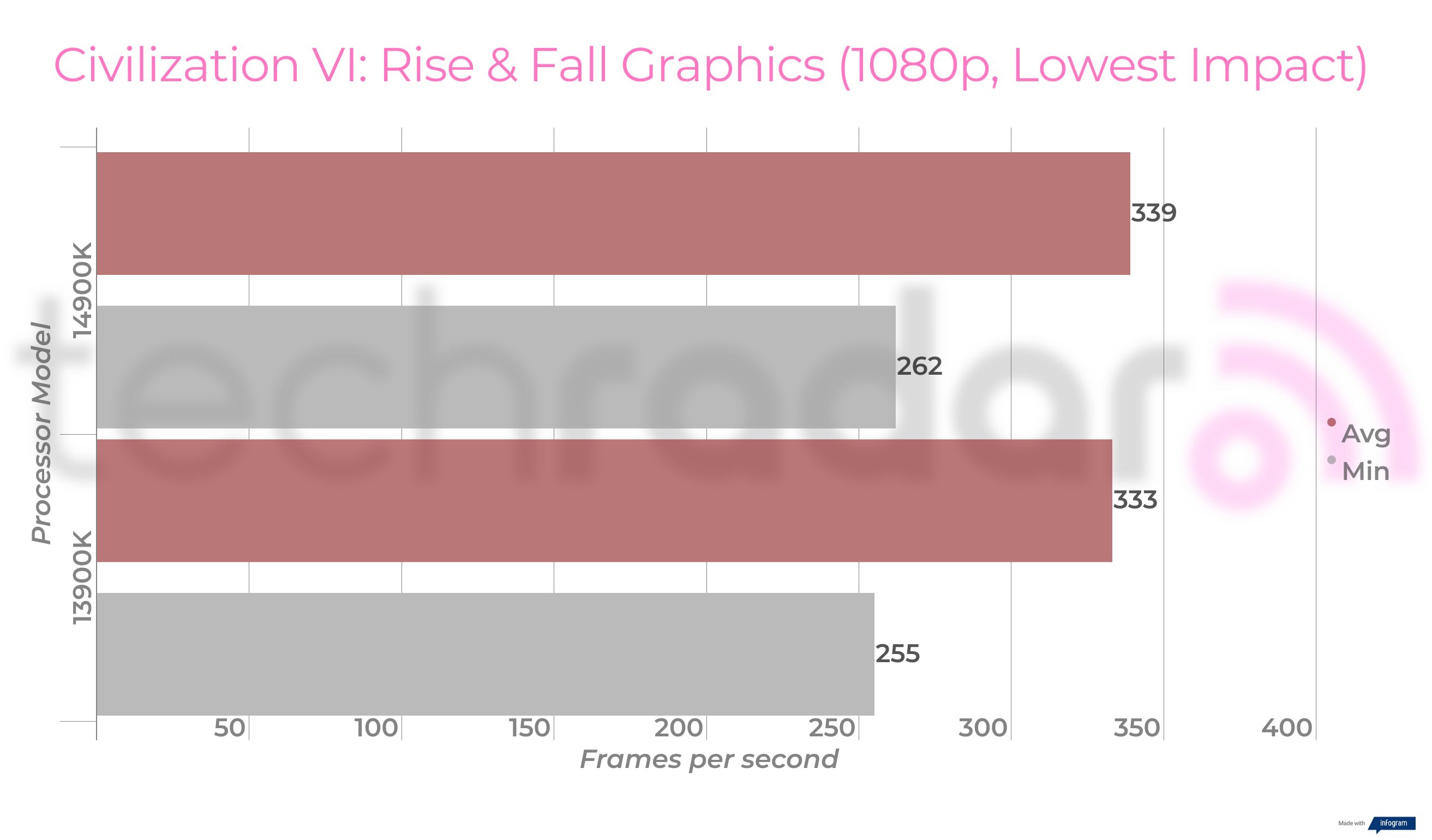
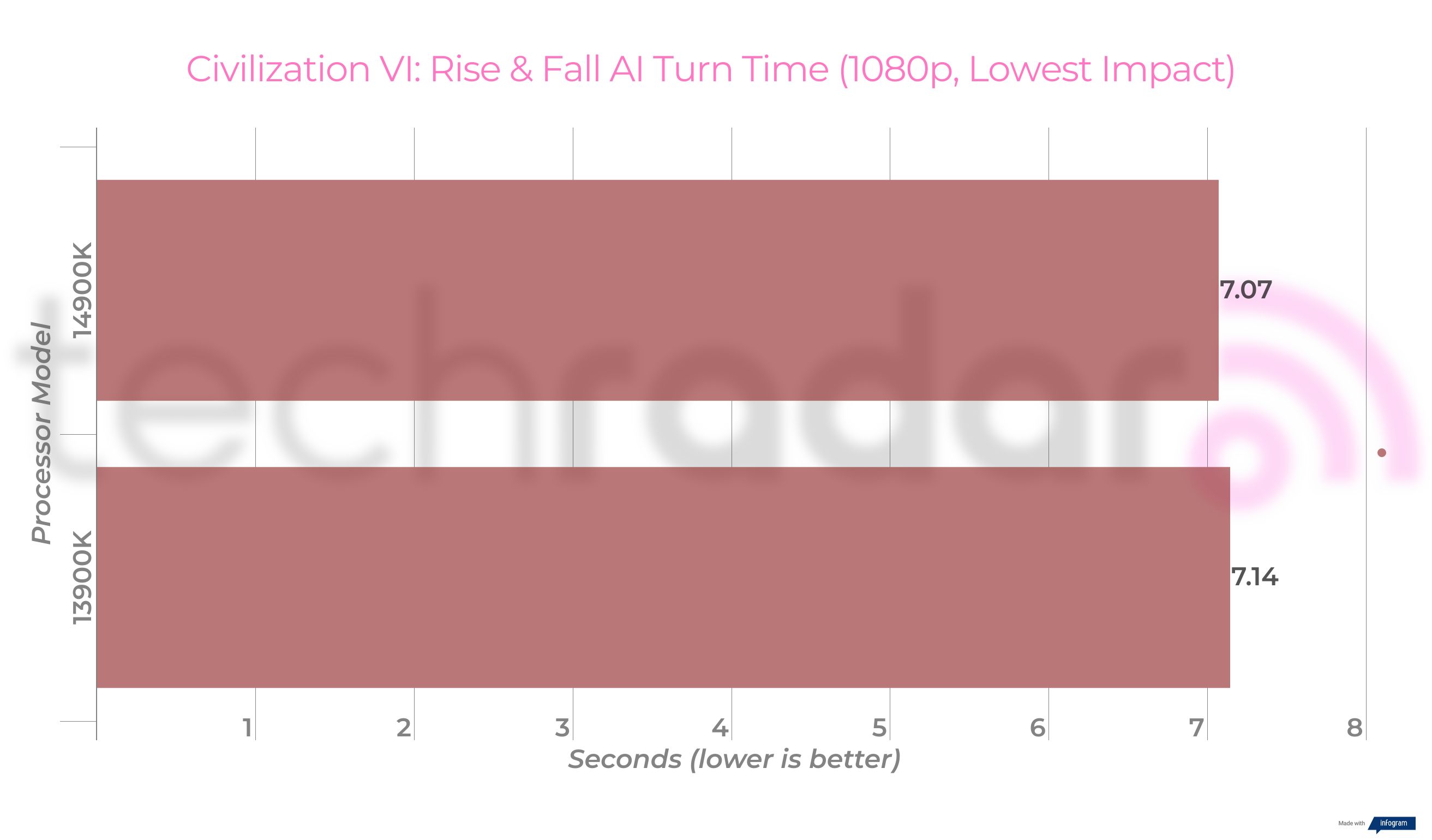
Gaming is where the Core i7-14700K really excels. In fact, it's Intel's best gaming processor of all the chips I tested, and second overall only behind the AMD Ryzen 7 7800X3D, (which takes the title for best gaming processor overall by a healthy margin in my testing, which you can see in my Intel Core i7-14700K review).
Against the 13700K, however, the 14700K and its predecessor battle it out to a near draw, with each chip scoring wins on one game but losing the next. The margins are never that great, however, and the i7-14700K pulls out a 1.5% better gaming performance overall to take this round, but boy howdy is it close.
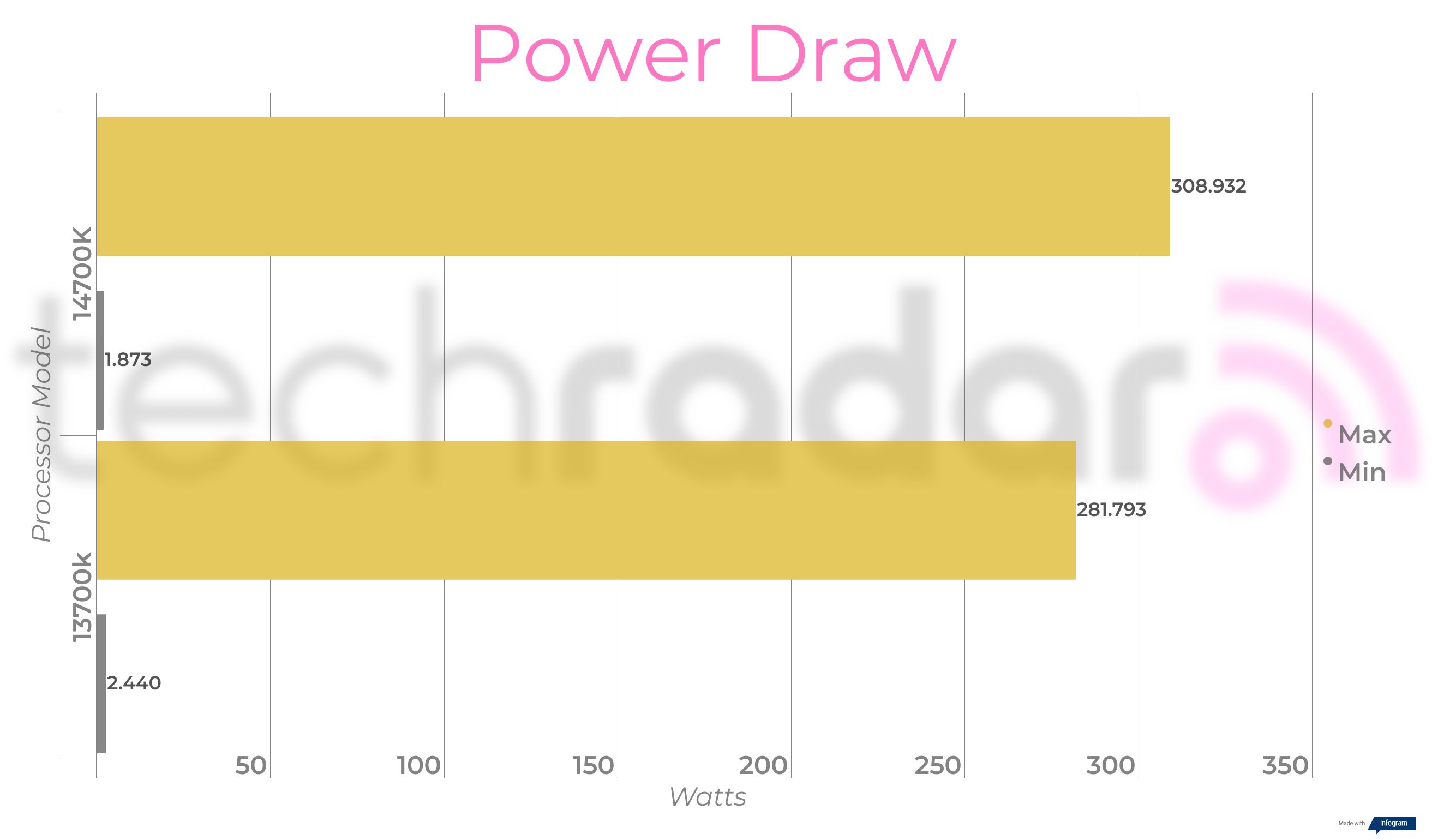
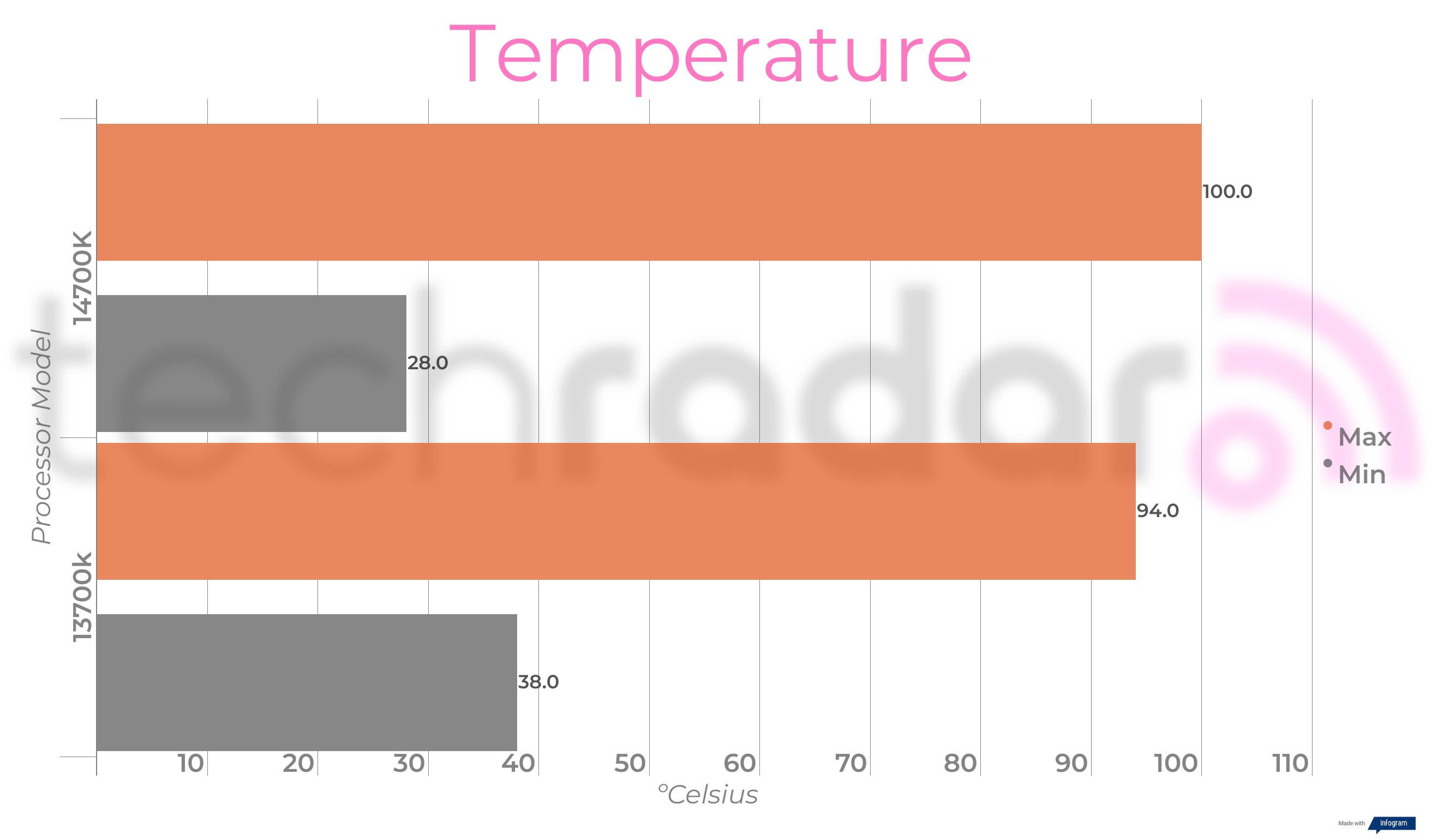
That extra performance comes from extra cores, however, and extra cores need extra power. This is plain to see in the maximum power draw for the 14700K, which hits just under 309W of power under its maximum load in my testing. Compared to the 13700K's just under 282W maximum power draw, and you have about a 10% increase in power during heavy use though it did record a lower minimum energy draw, but the absolute wattage we're talking about here is less than 1W, so that's not really a factor.
And, obviously, we can't talk about power draw without talking about heat. Under heavy load, the i7-14700K hit a maximum temperature of 100ºC, compared to the Core i7-13700K's more reasonable 94ºC maximum temperature. And given that I was using the MSI MAG Coreliquid E360 AIO cooler, one of the best CPU coolers you can get right now on an open-air testbench, you'll have to make sure your airflow game is on point with this chip.
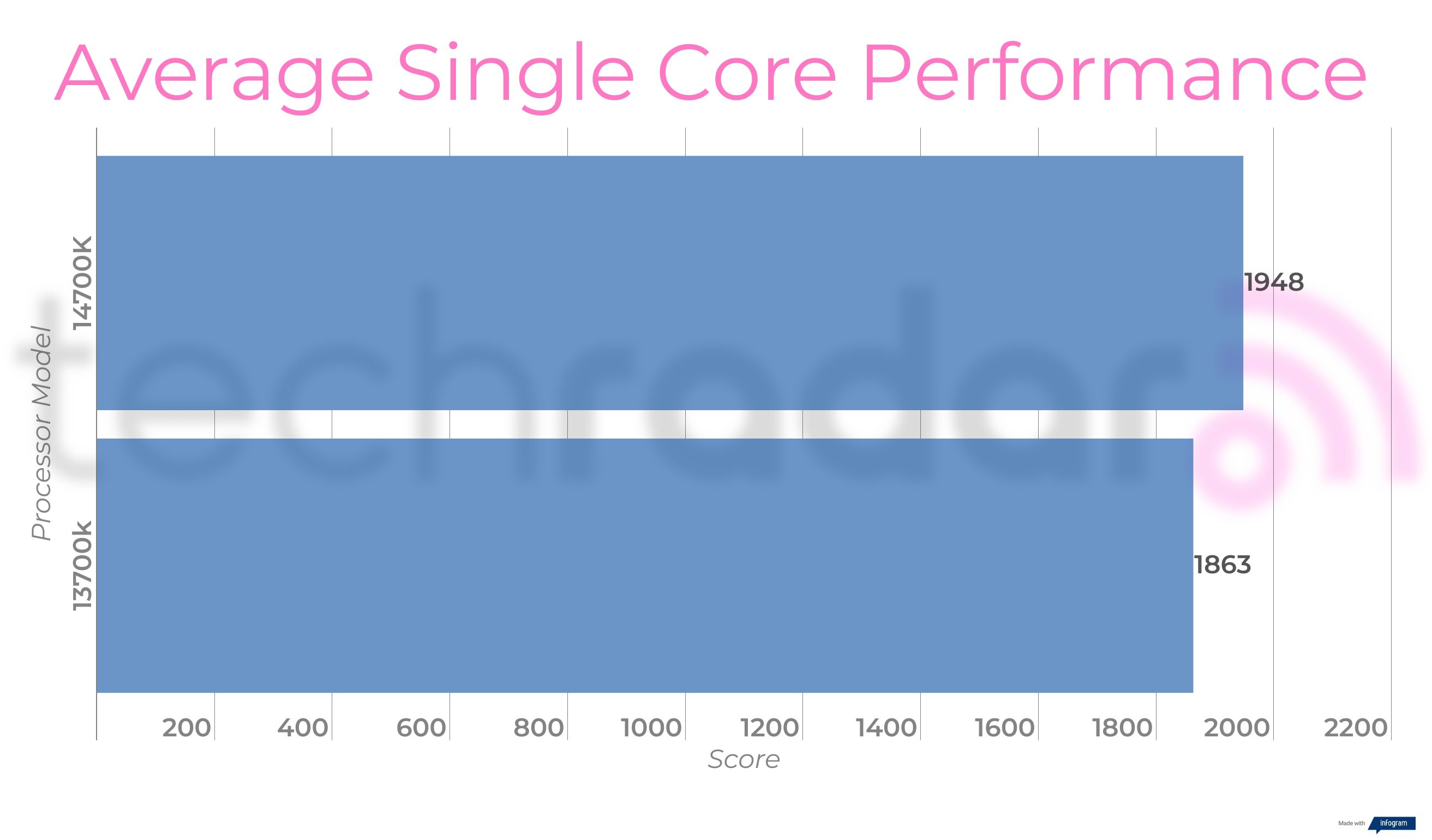
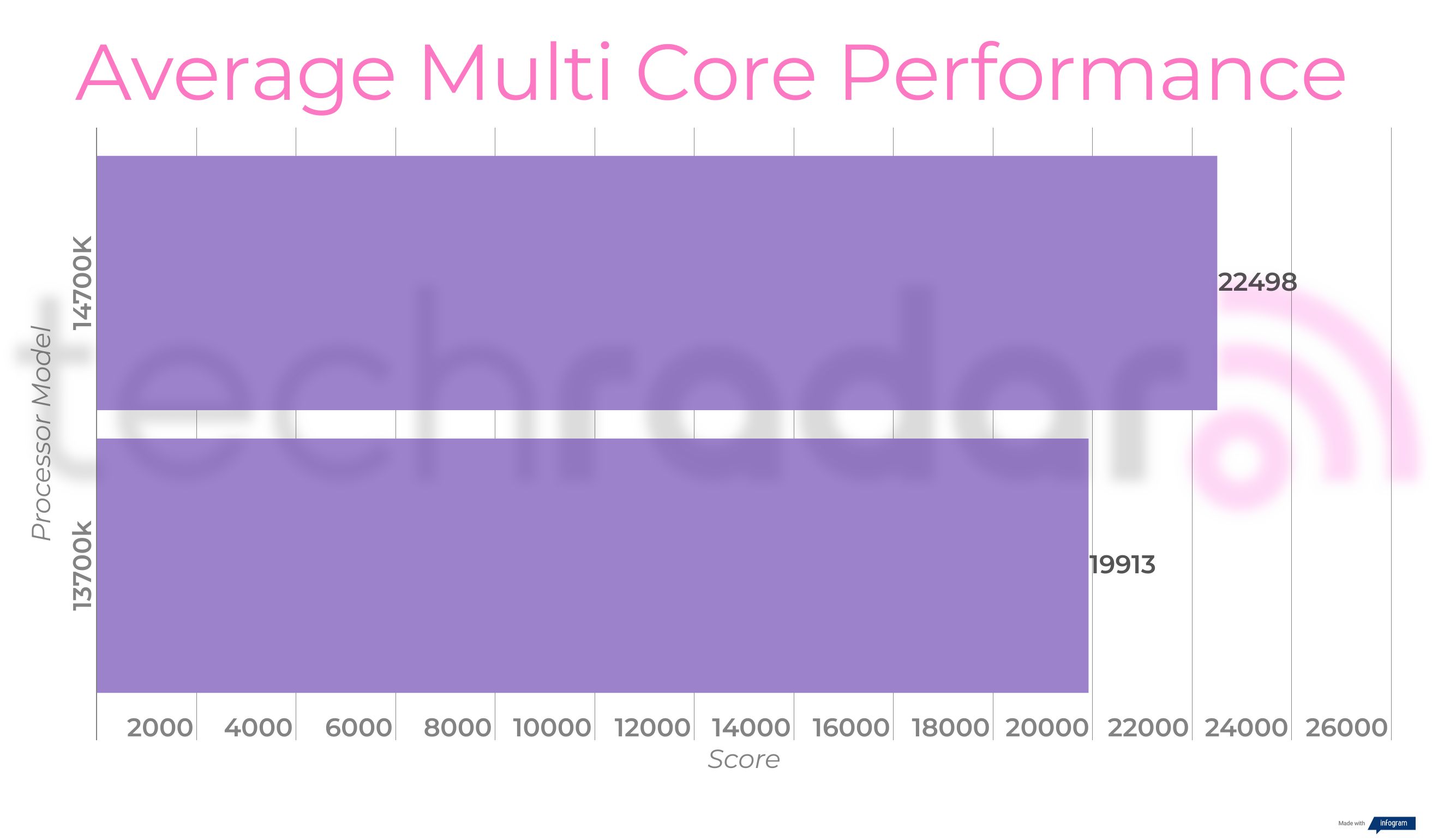

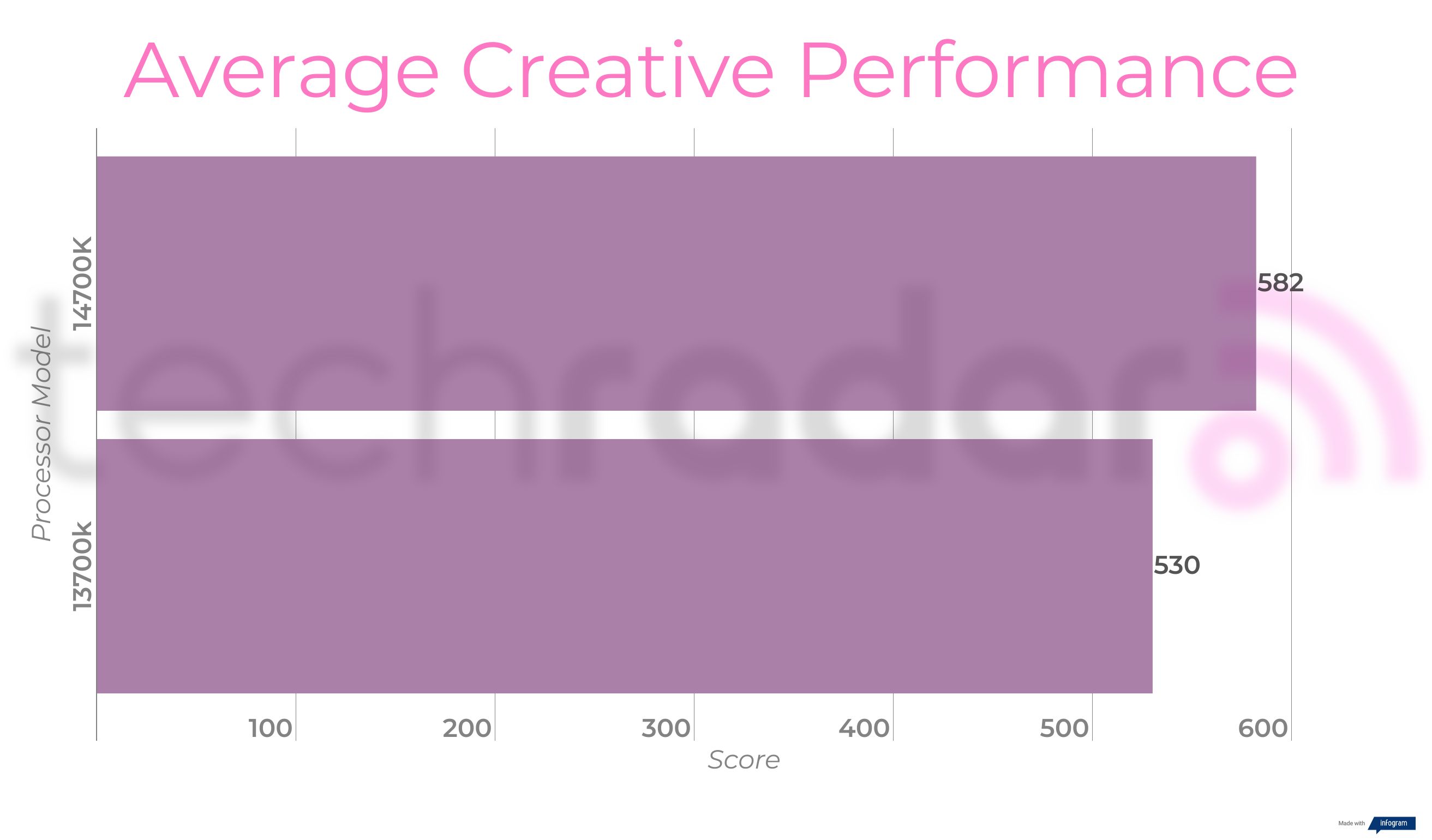
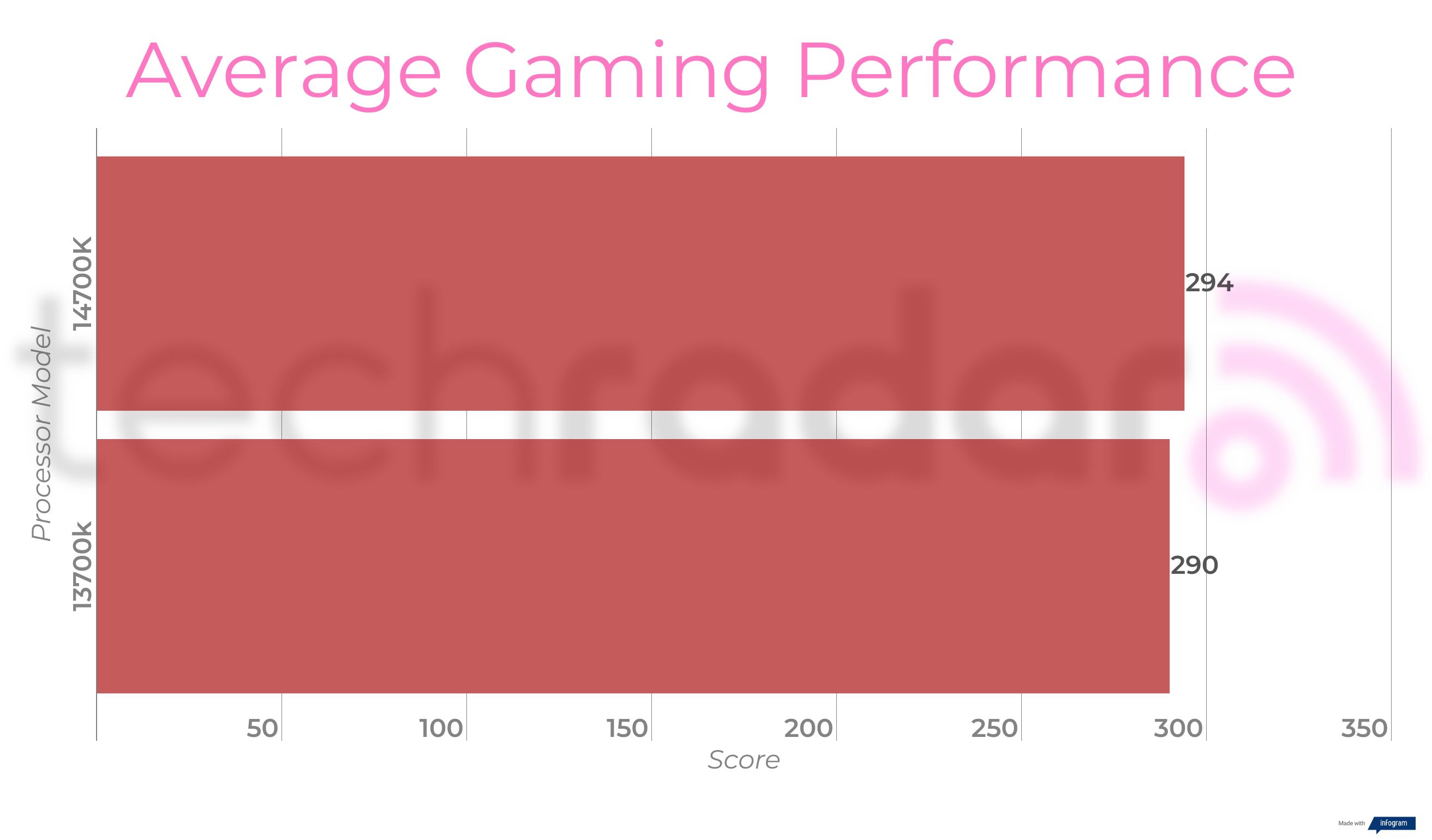
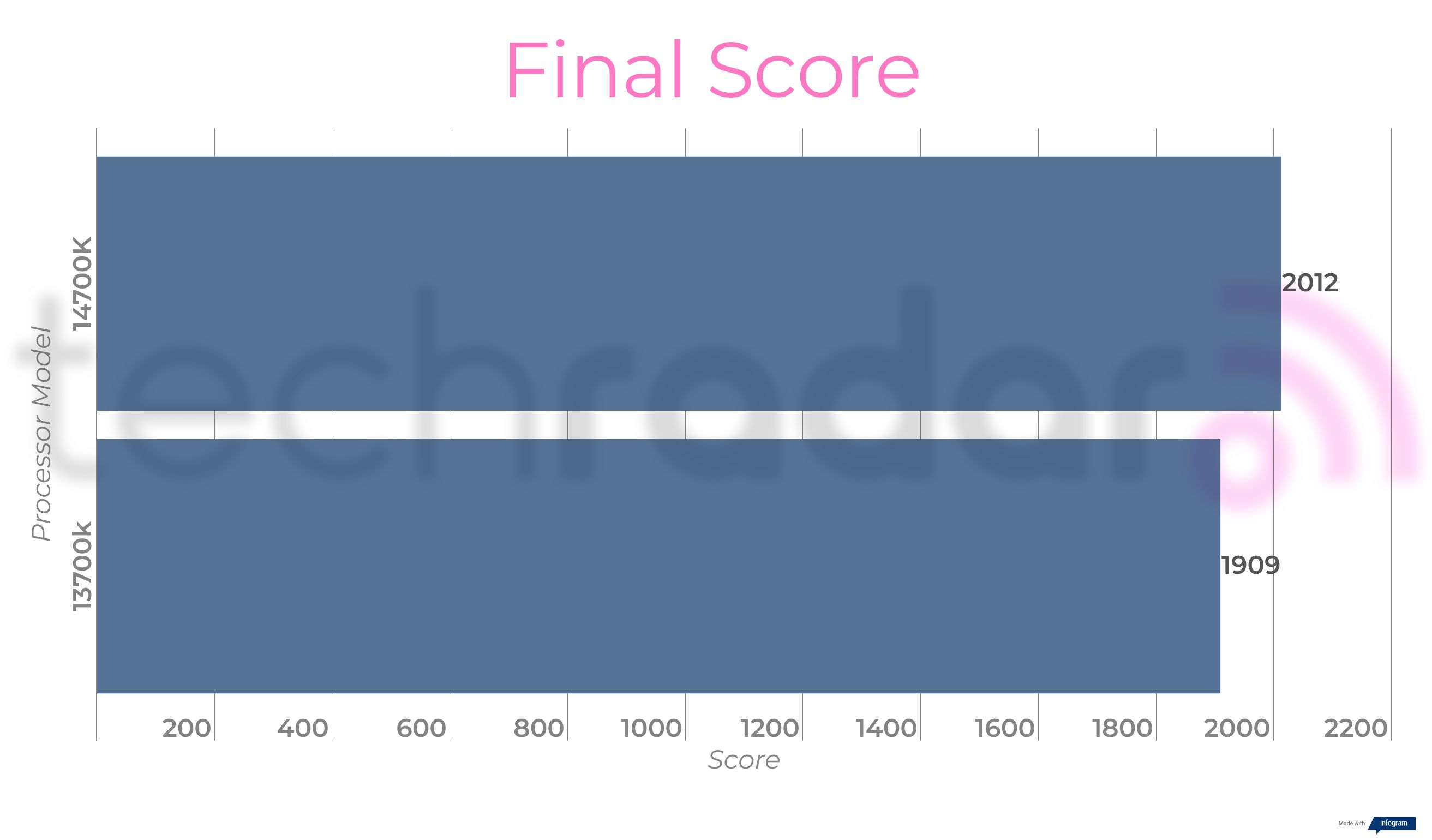
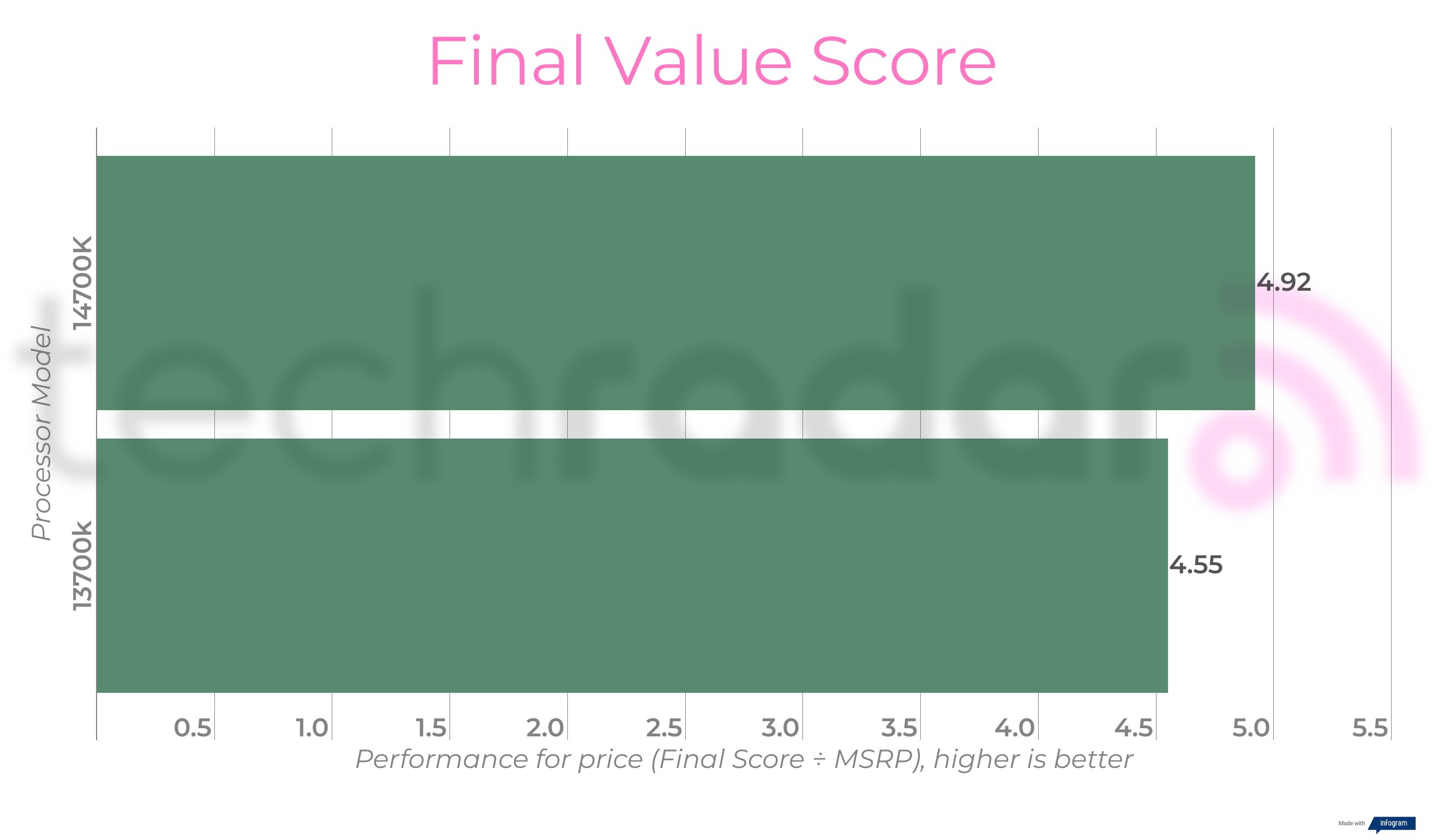
To summarize the performance differences, then, you're looking at 4.5% better single-core, 13% better multi-core, 9.9% better creative workload, and 1.5% better gaming performance, overall, with a 1.1% worse productivity showing for the 14700K vs 13700K. Average it all together and you get about a 5.4% better performance from the 14700K, making it an 8% better value overall than the 13700K.
- Winner: Intel Core i7-14700K
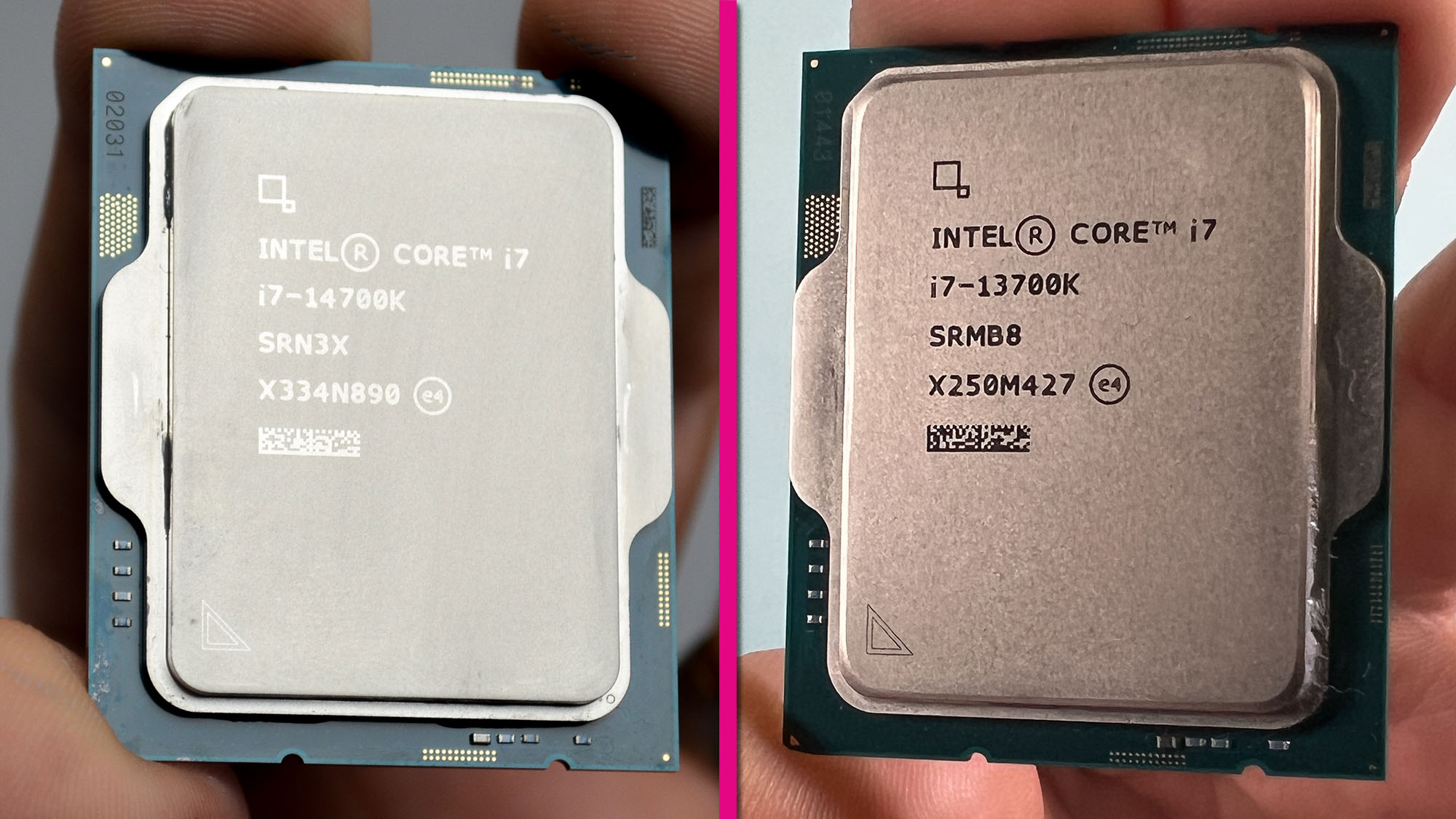
14700K vs 13700K: Final verdict
Ultimately, when talking about gen-on-gen performance gains, you really want to see a greater than 10% improvement at a minimum with a 15% gain being respectable and a 20% performance gain or higher being the stuff of 5-star reviews and Best in Class awards.
And that's really what makes the i7-14700K a true refresh, which isn't something we've seen from Intel in a while. After the 12th-gen Alder Lake chips blew everyone away, the 13th-gen Raptor Lake chips came along and impressed us even more. The 14700K is not that kind of chip, but a roughly 5% performance improvement on one of the best processors ever made turns out to be an even better processor that can rival the venerable Intel Core i9-13900K and give the best AMD processors a run for their money.
It might not be the revolution that Raptor Lake was, but the Intel Core i7-14700K is simply the better chip because of the incredible foundation the i7-13700K laid for it, and it is honestly the only chip from the Raptor Lake Refresh lineup that I'd unequivocally recommend. Even if the Core i7-13700K gets a $150 price cut, I'd still tell you to go for the 14700K, since the extra cores do bring some better specs to the table and the initial stage of support for Wi-Fi 7 and Thunderbolt 5 do give it a degree of future-proofing the 13th-gen Core i7 simply can't at this stage.
Besides, i9-13900K performance at an i7 price is just too good a deal to pass up, even against my beloved Core i7-13700K.

John (He/Him) is the Components Editor here at TechRadar and he is also a programmer, gamer, activist, and Brooklyn College alum currently living in Brooklyn, NY.
Named by the CTA as a CES 2020 Media Trailblazer for his science and technology reporting, John specializes in all areas of computer science, including industry news, hardware reviews, PC gaming, as well as general science writing and the social impact of the tech industry.
You can find him online on Bluesky @johnloeffler.bsky.social